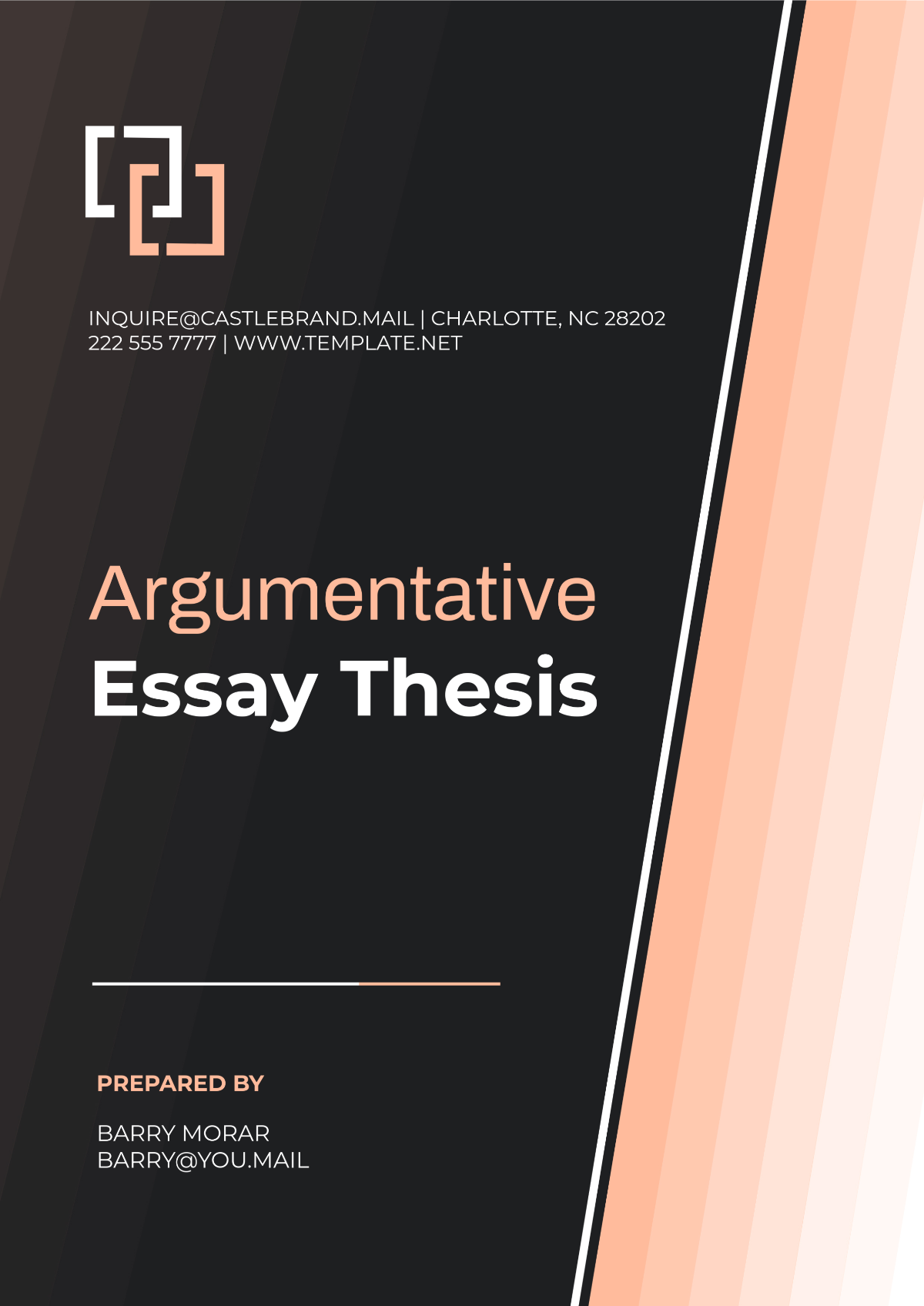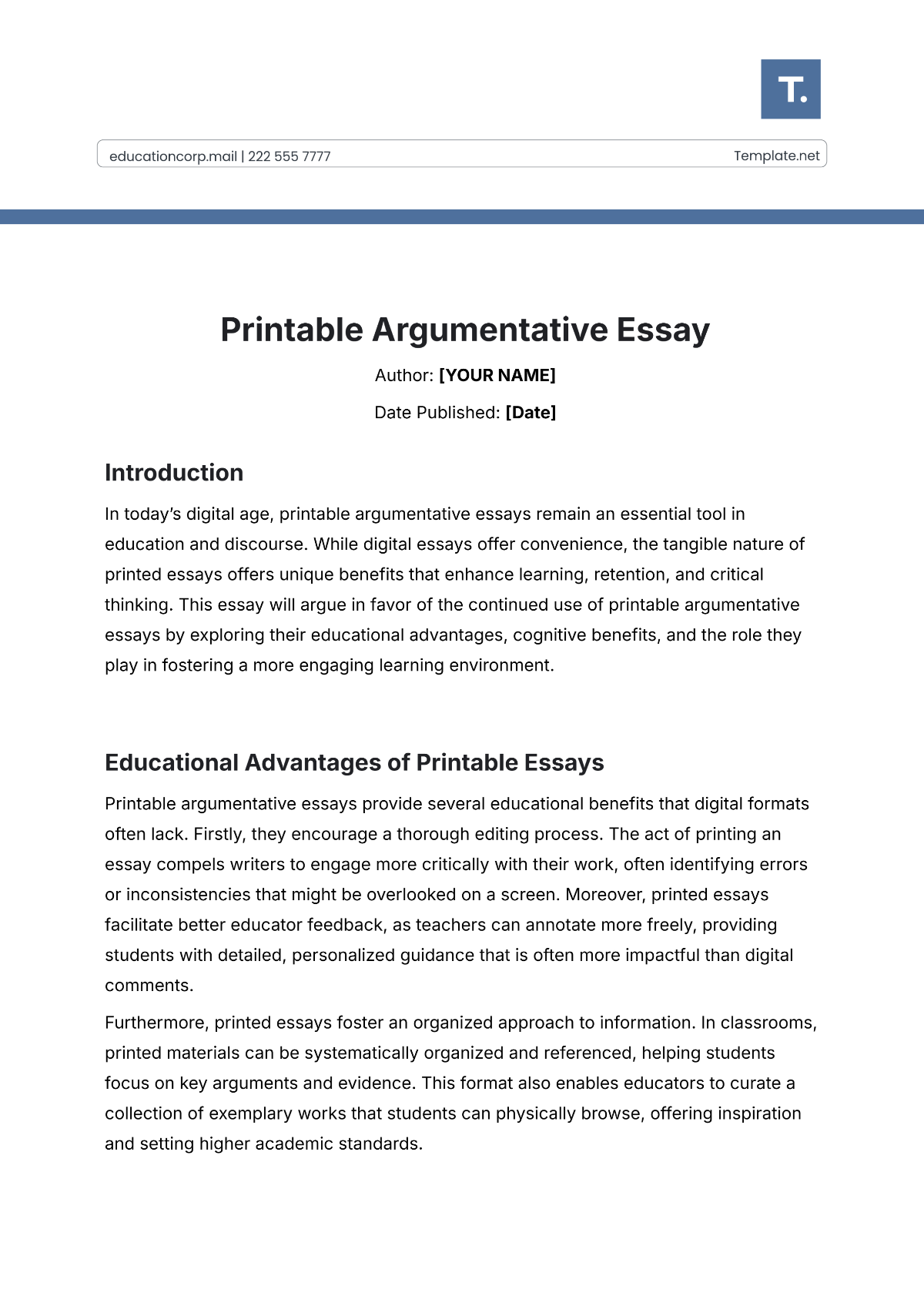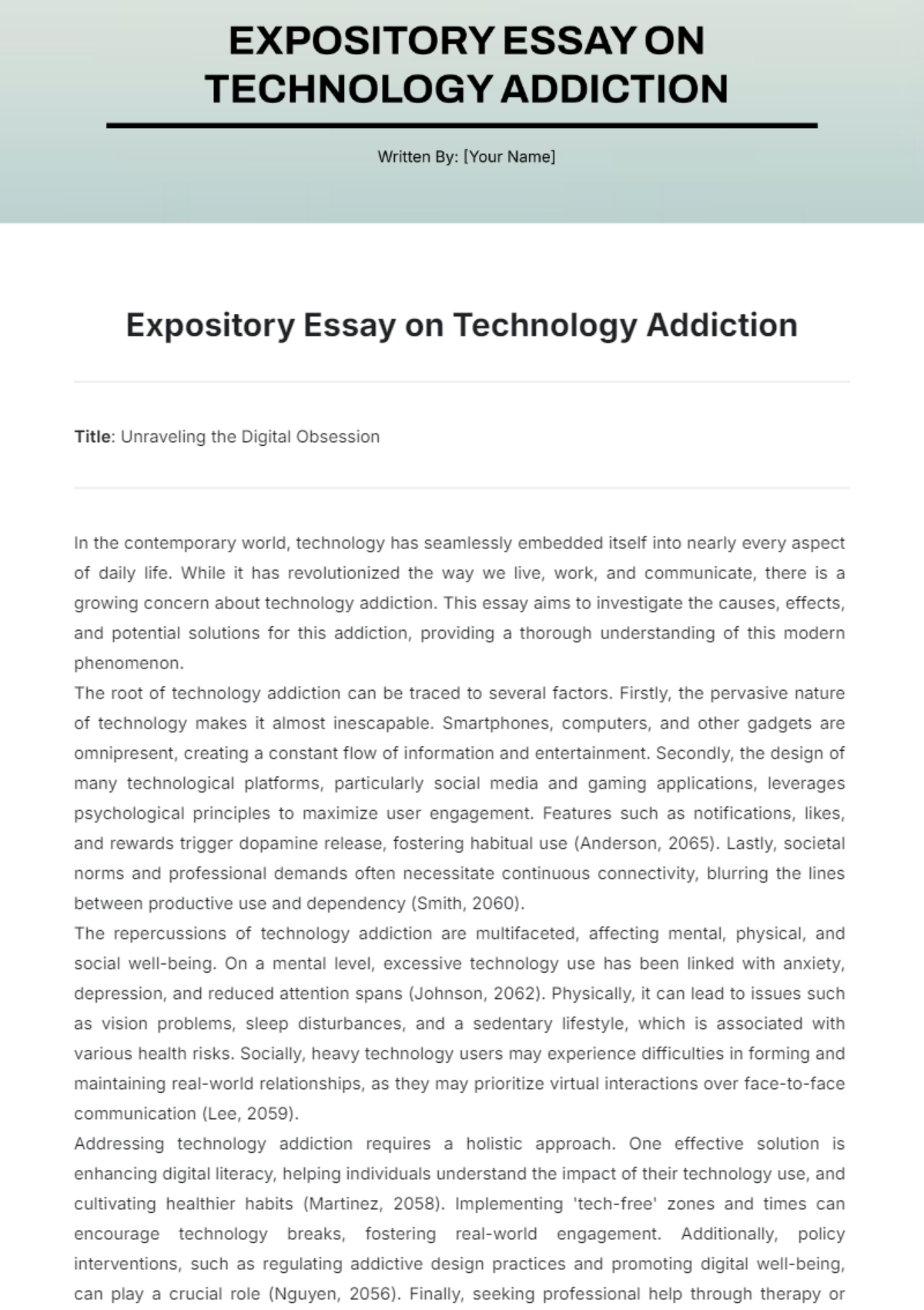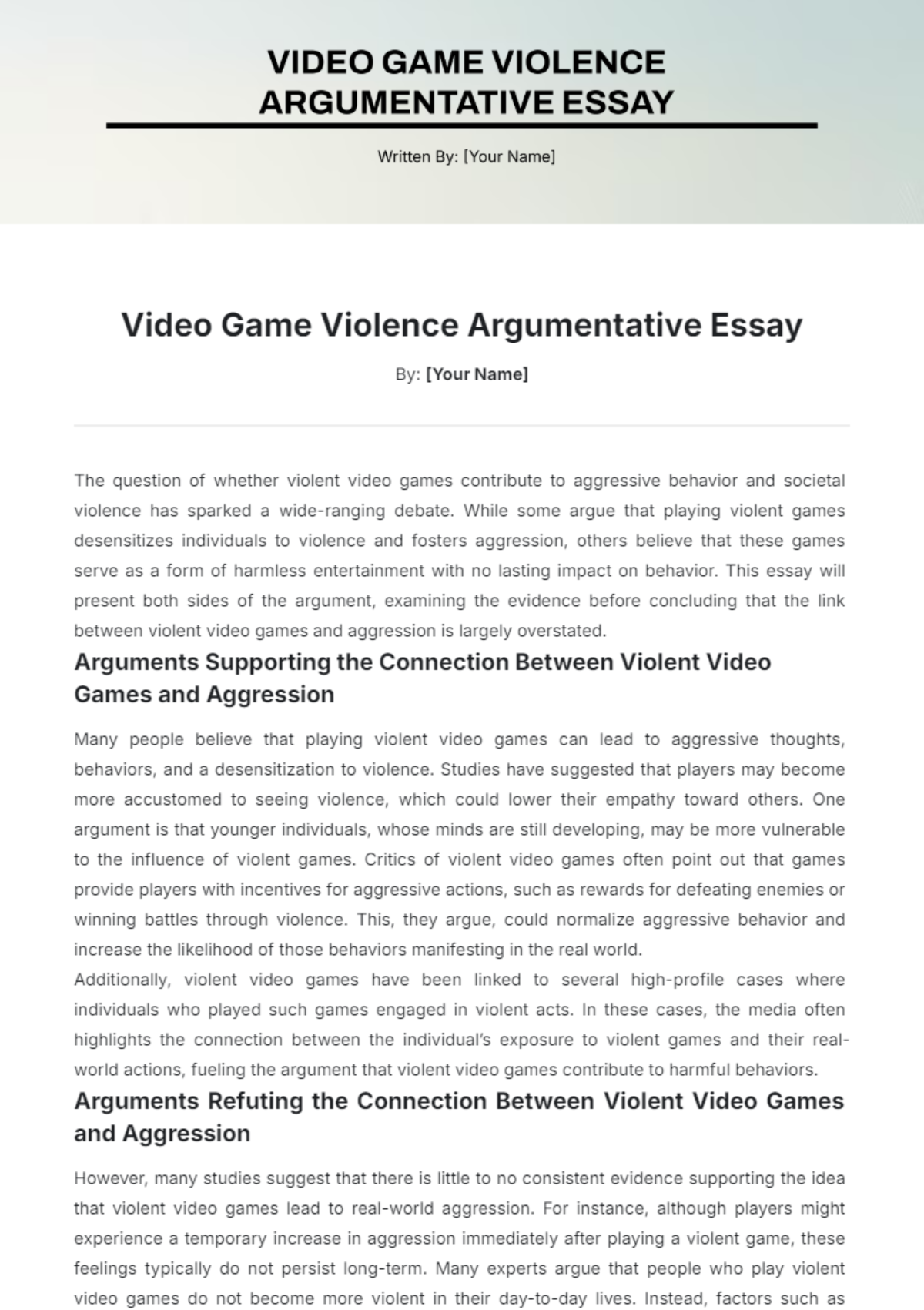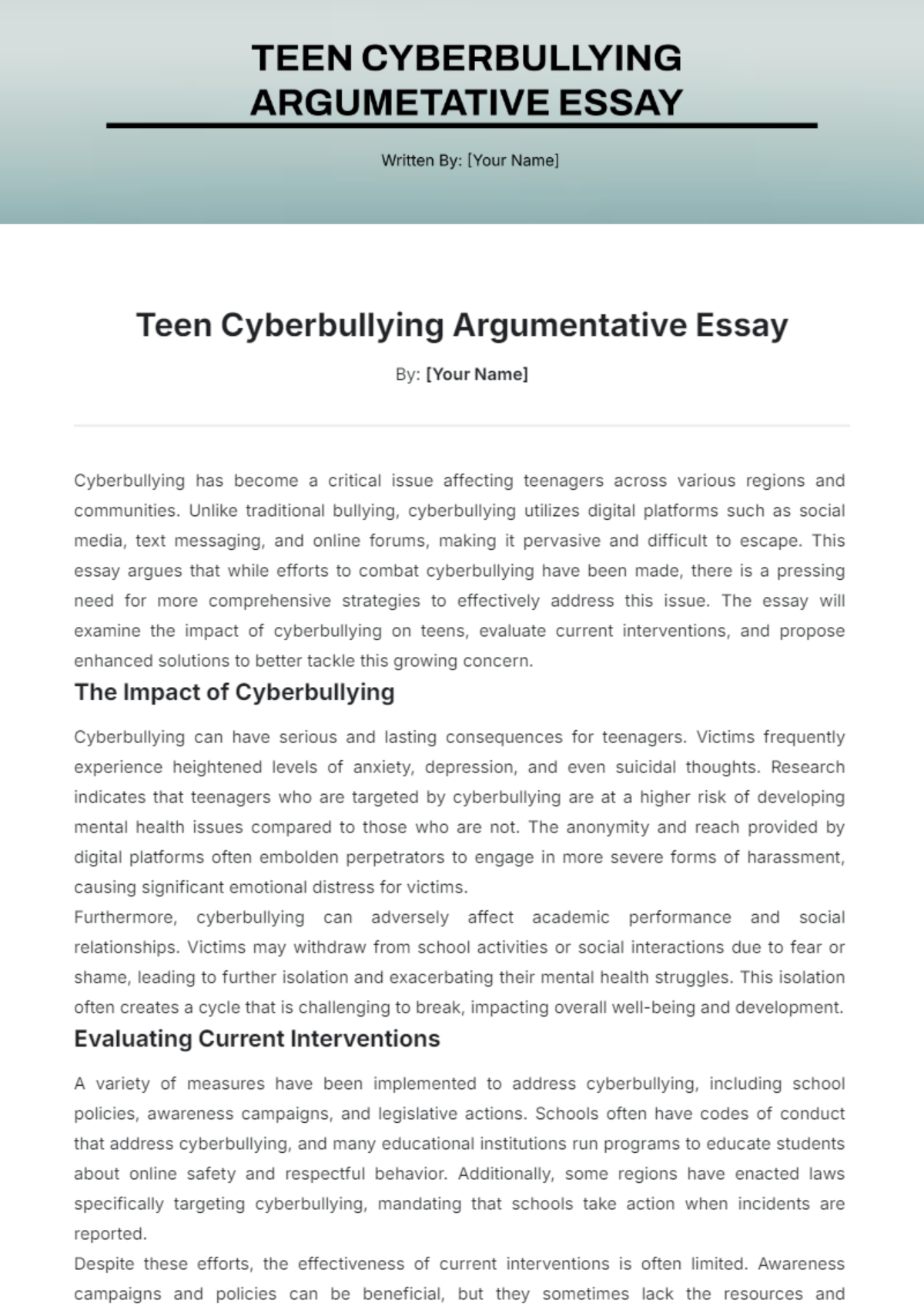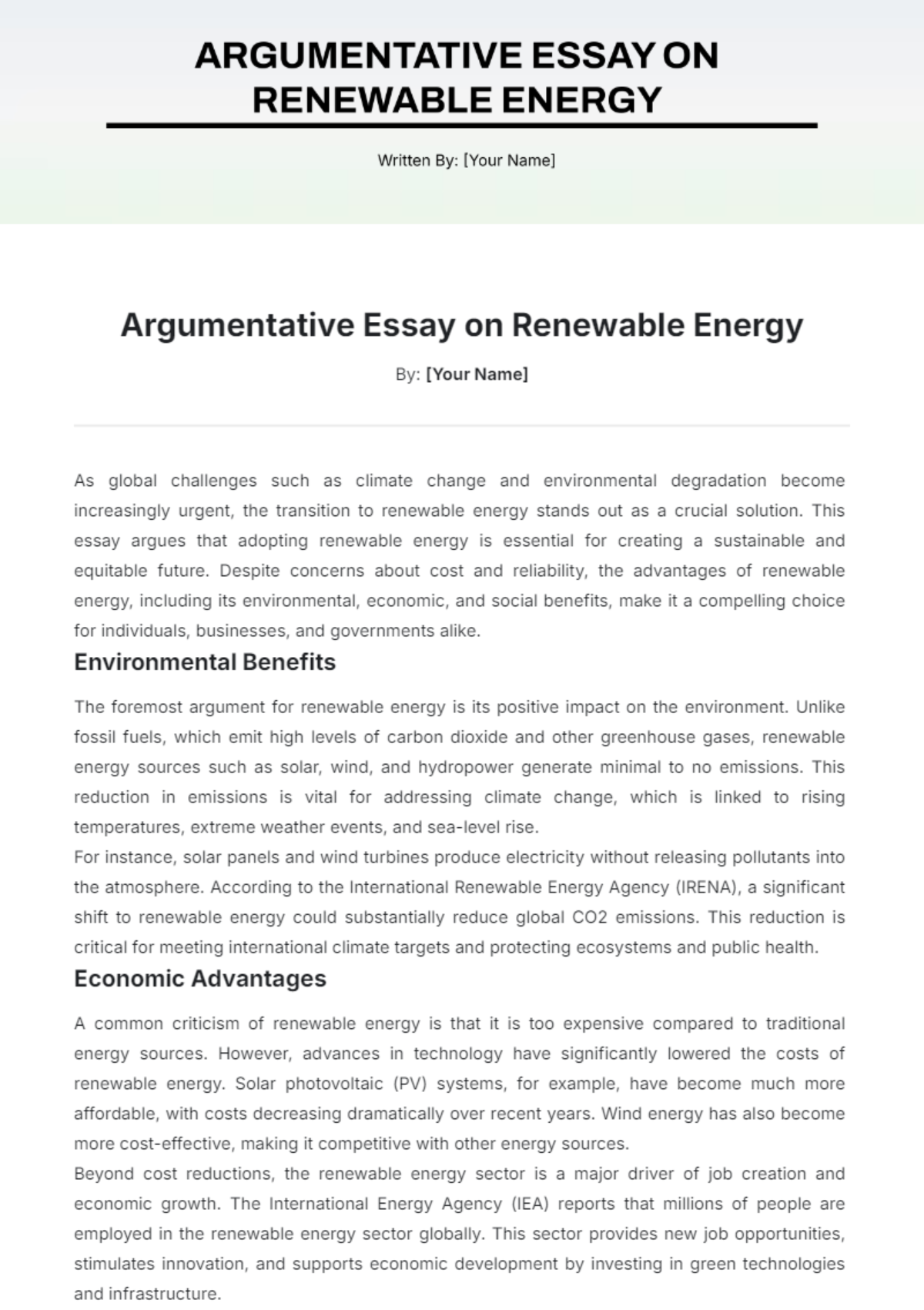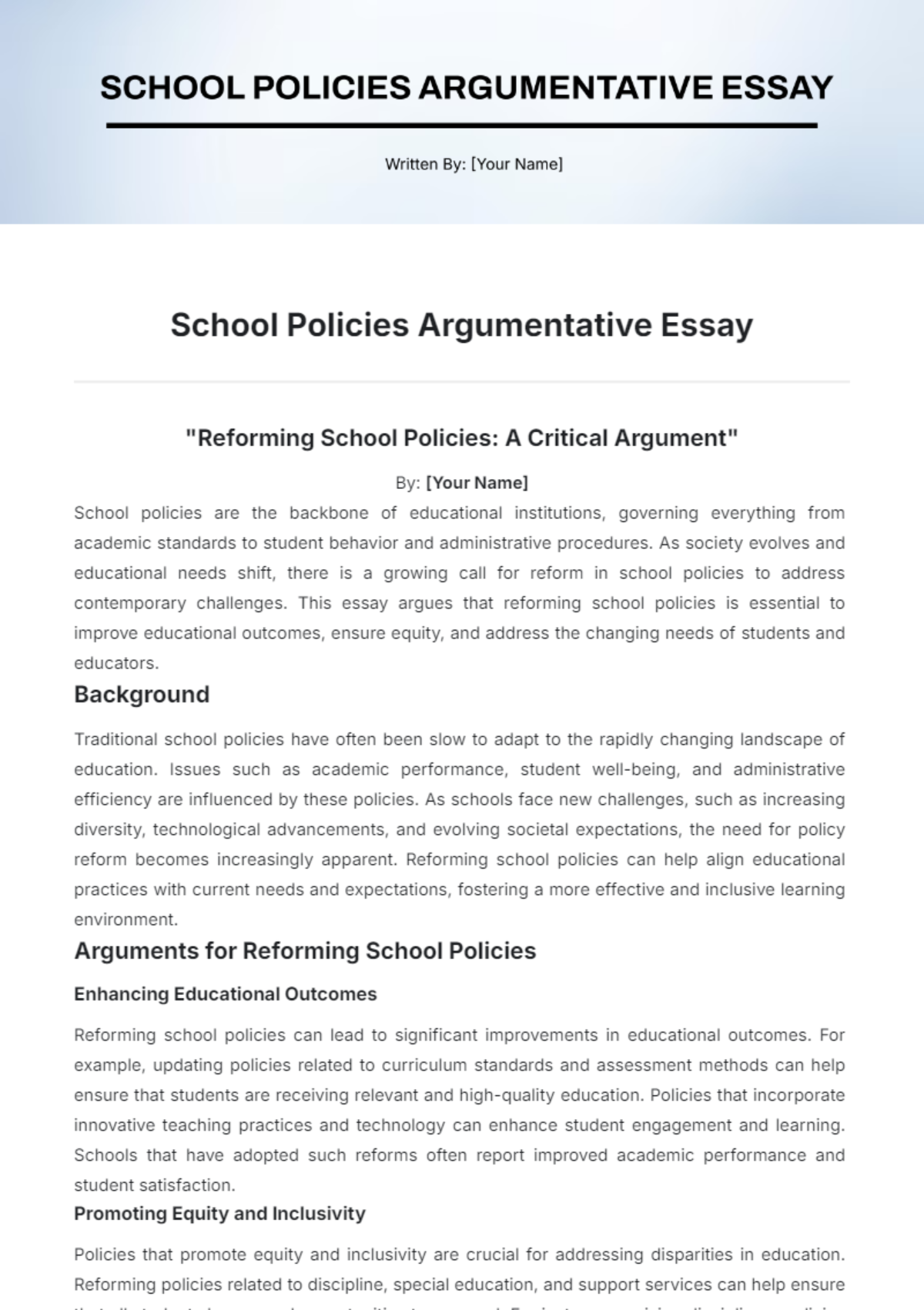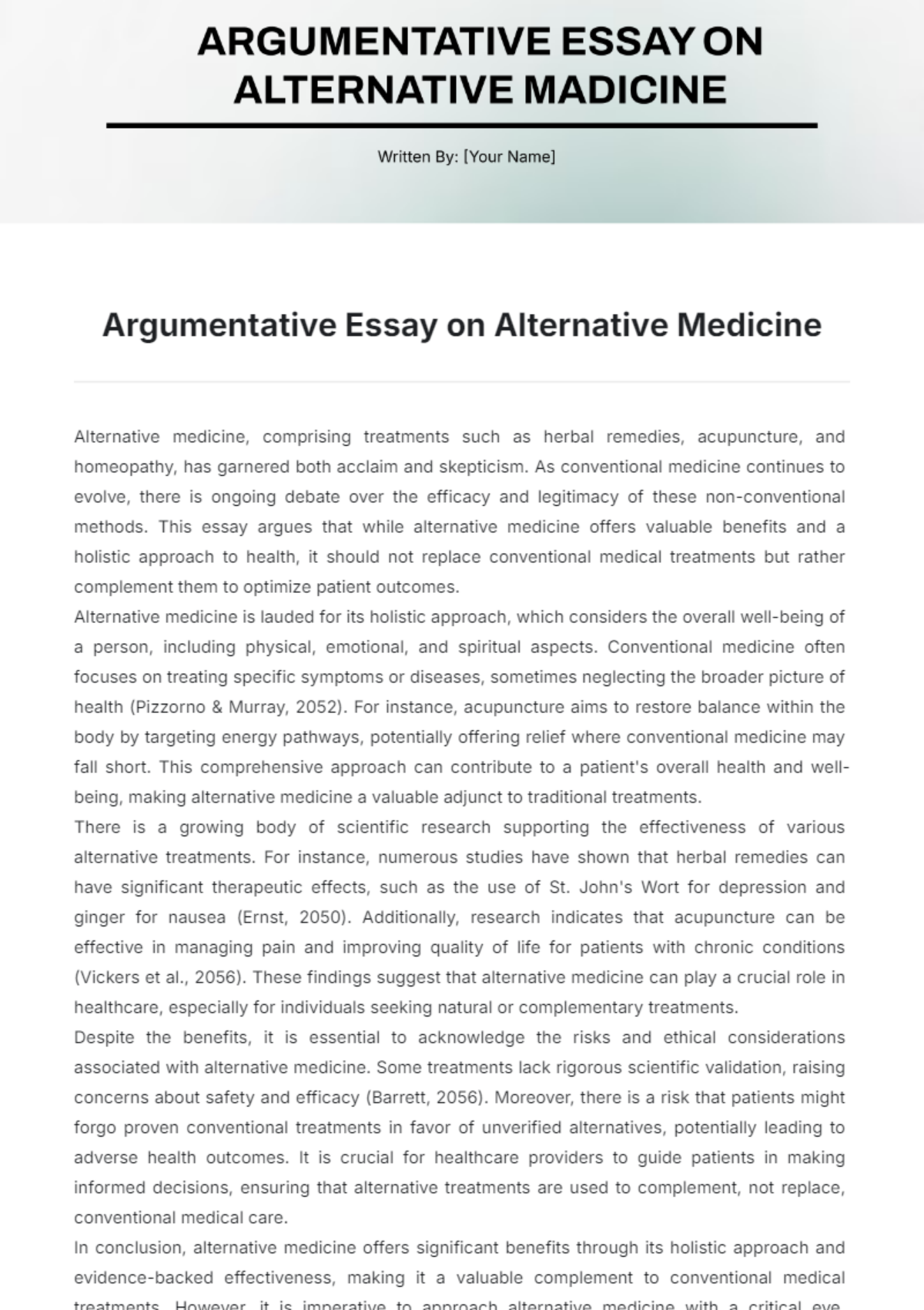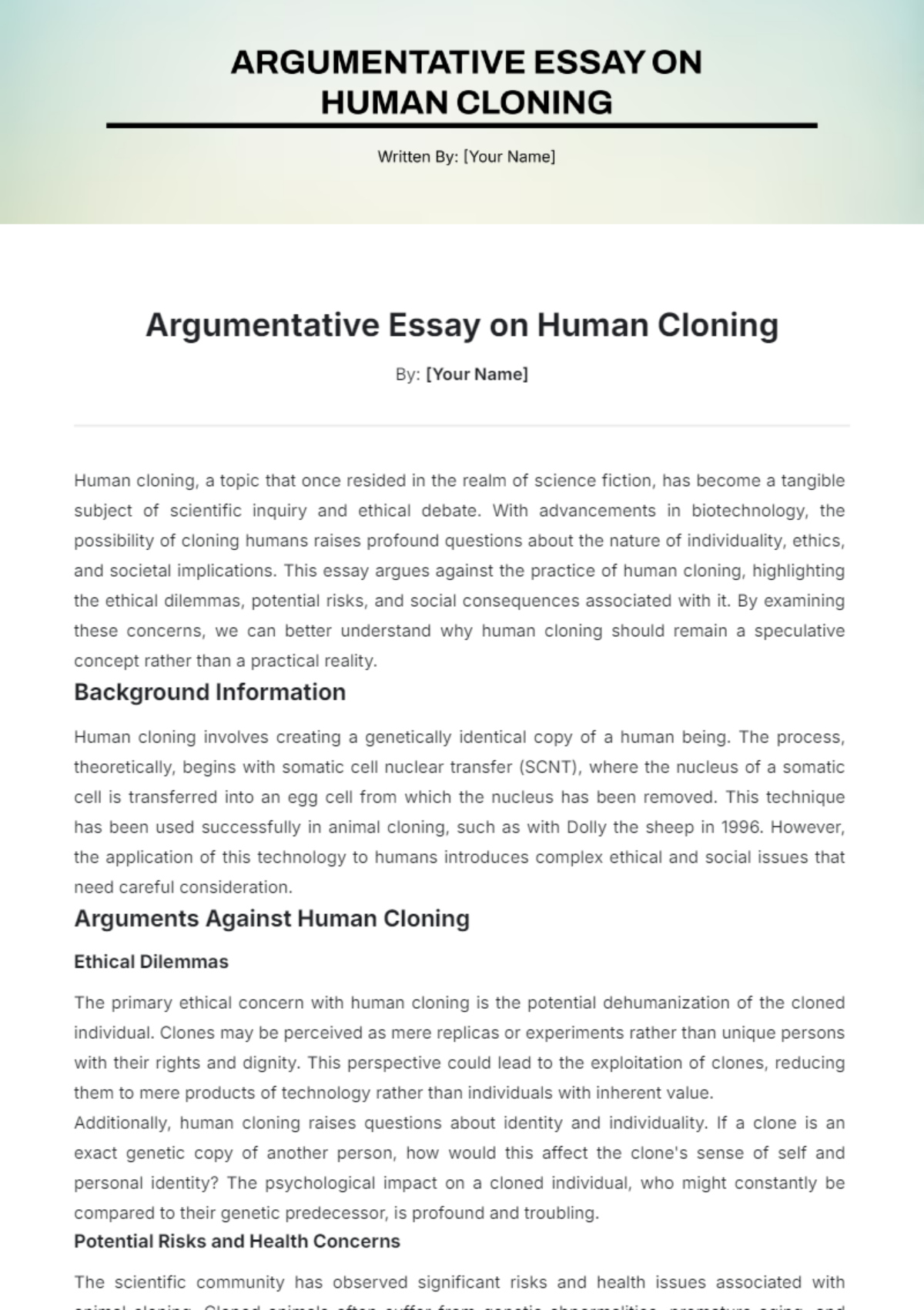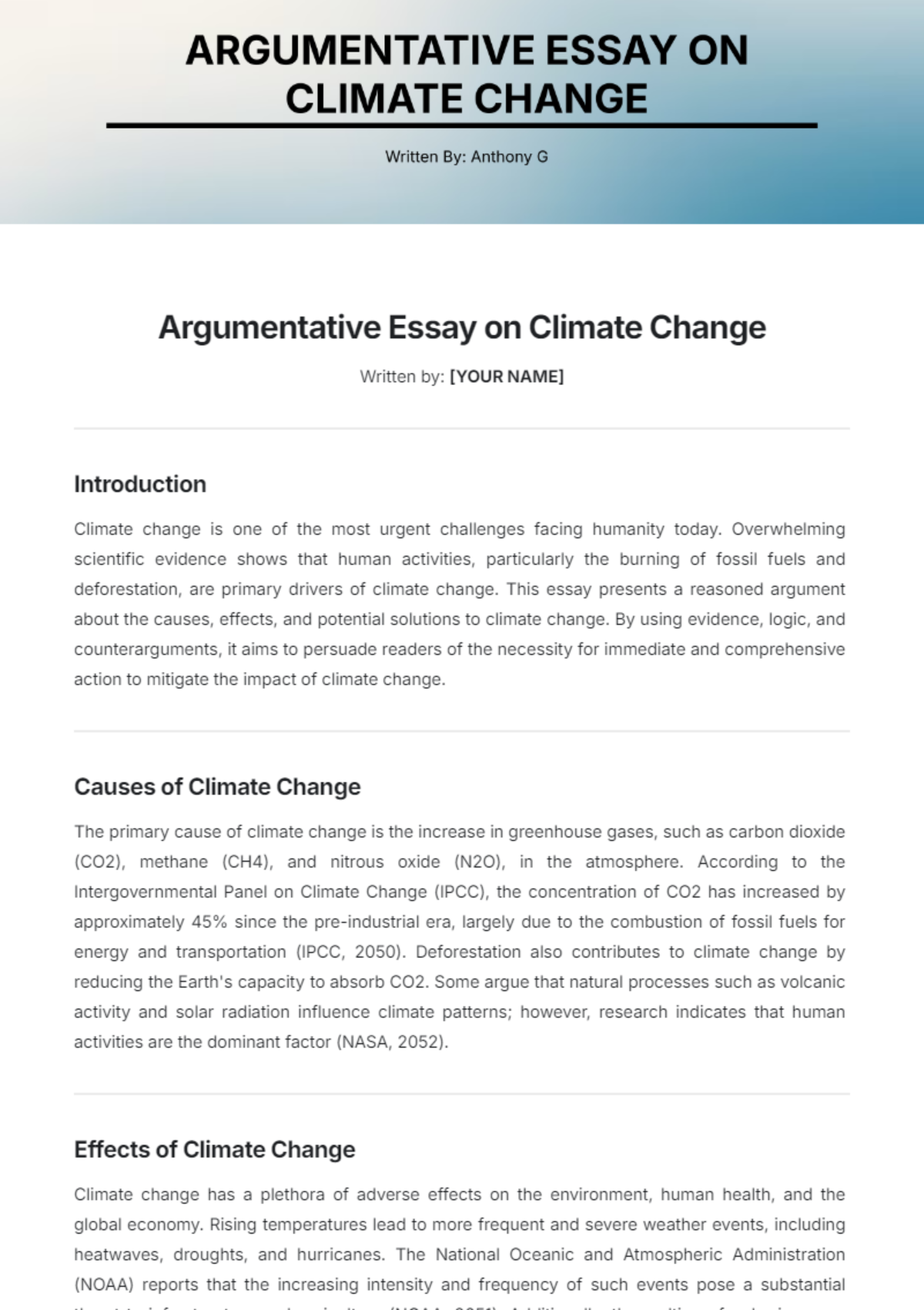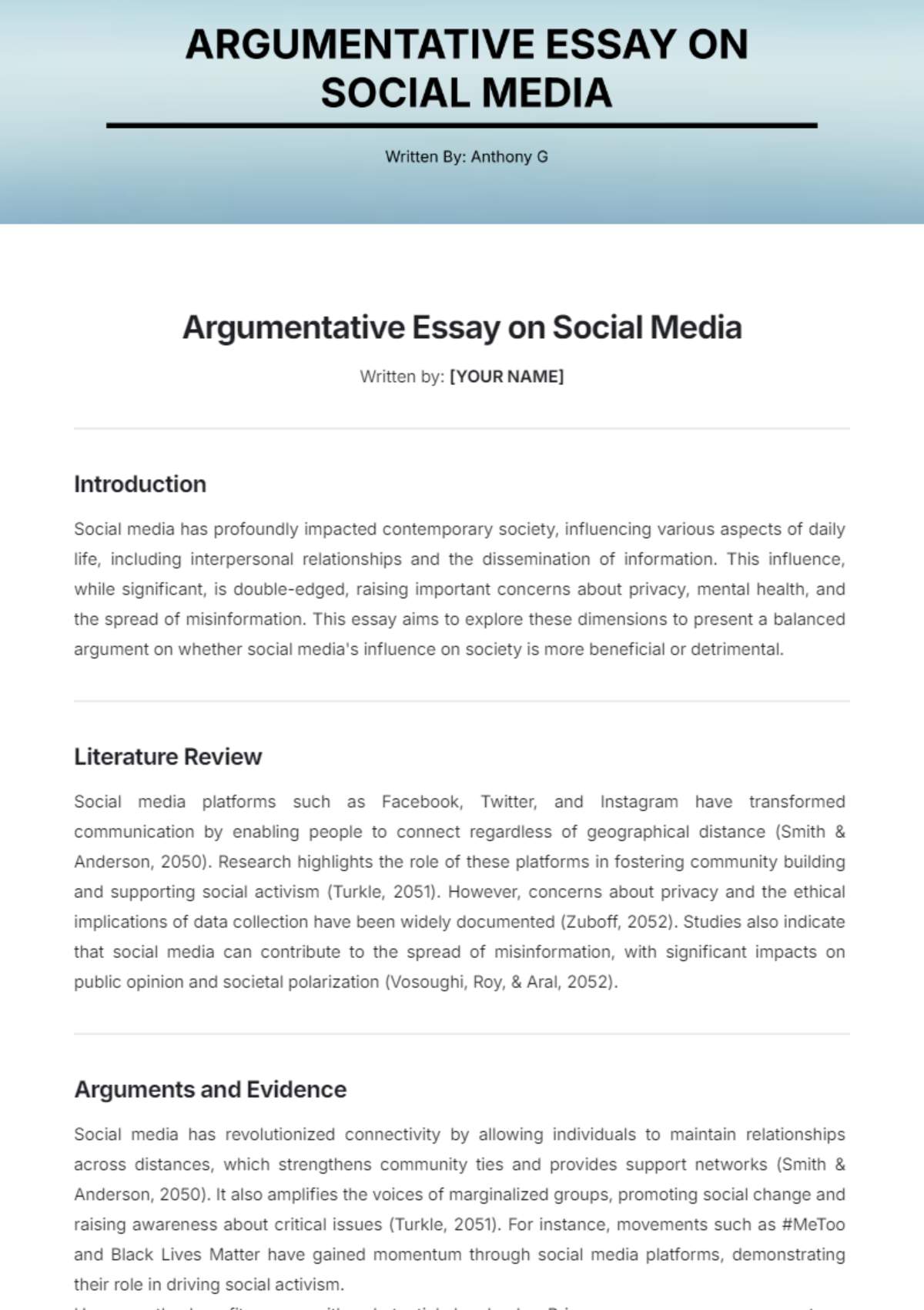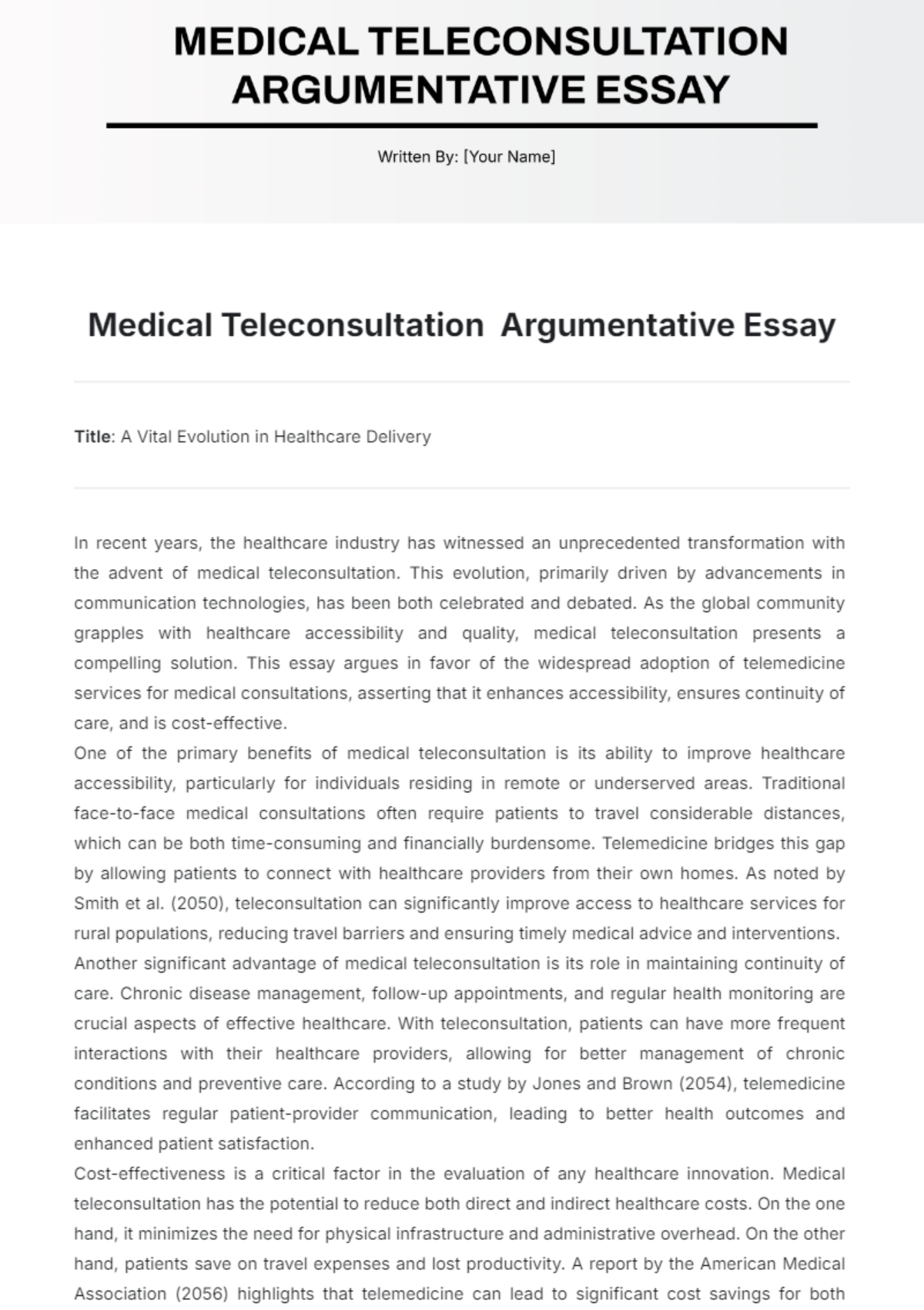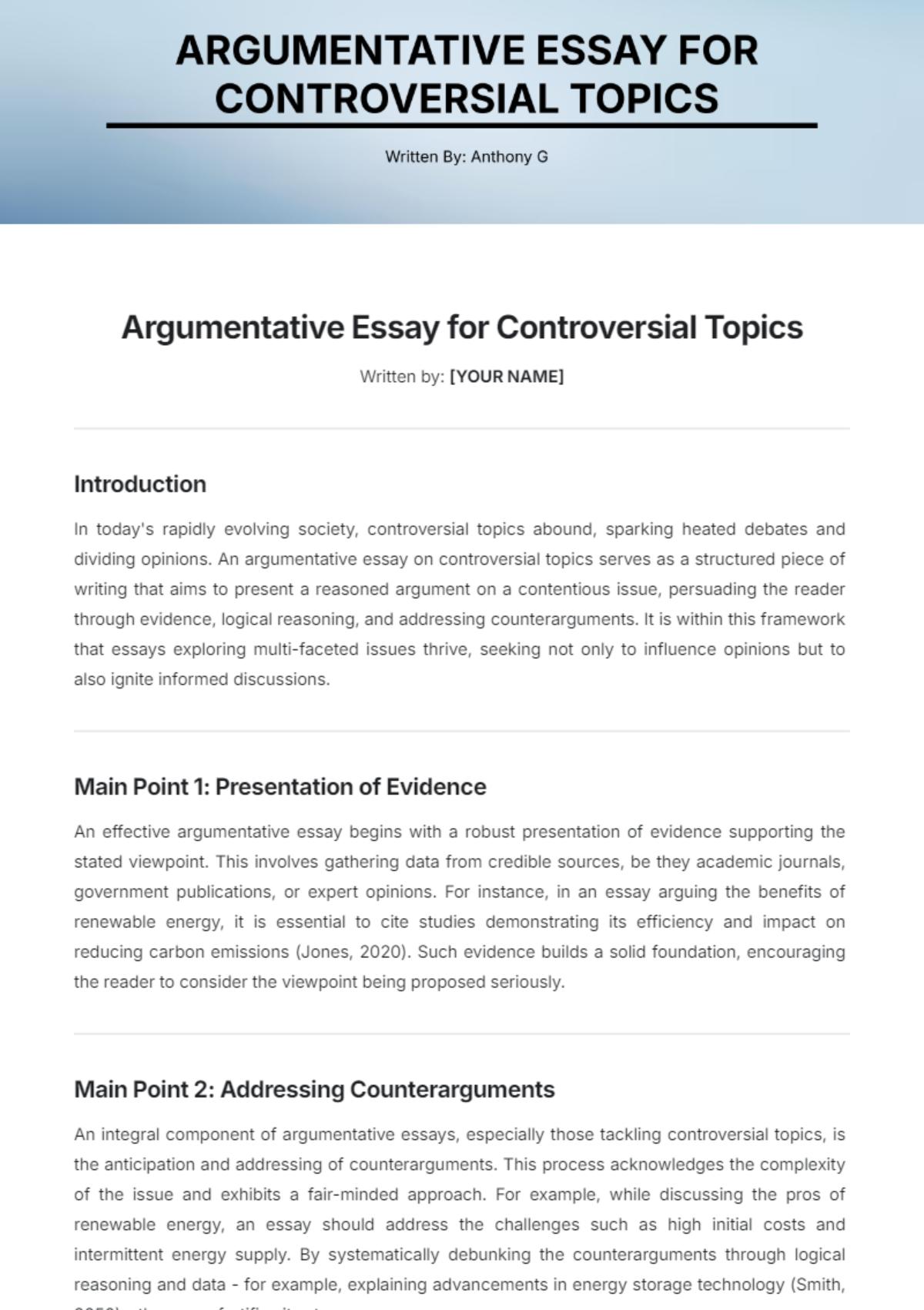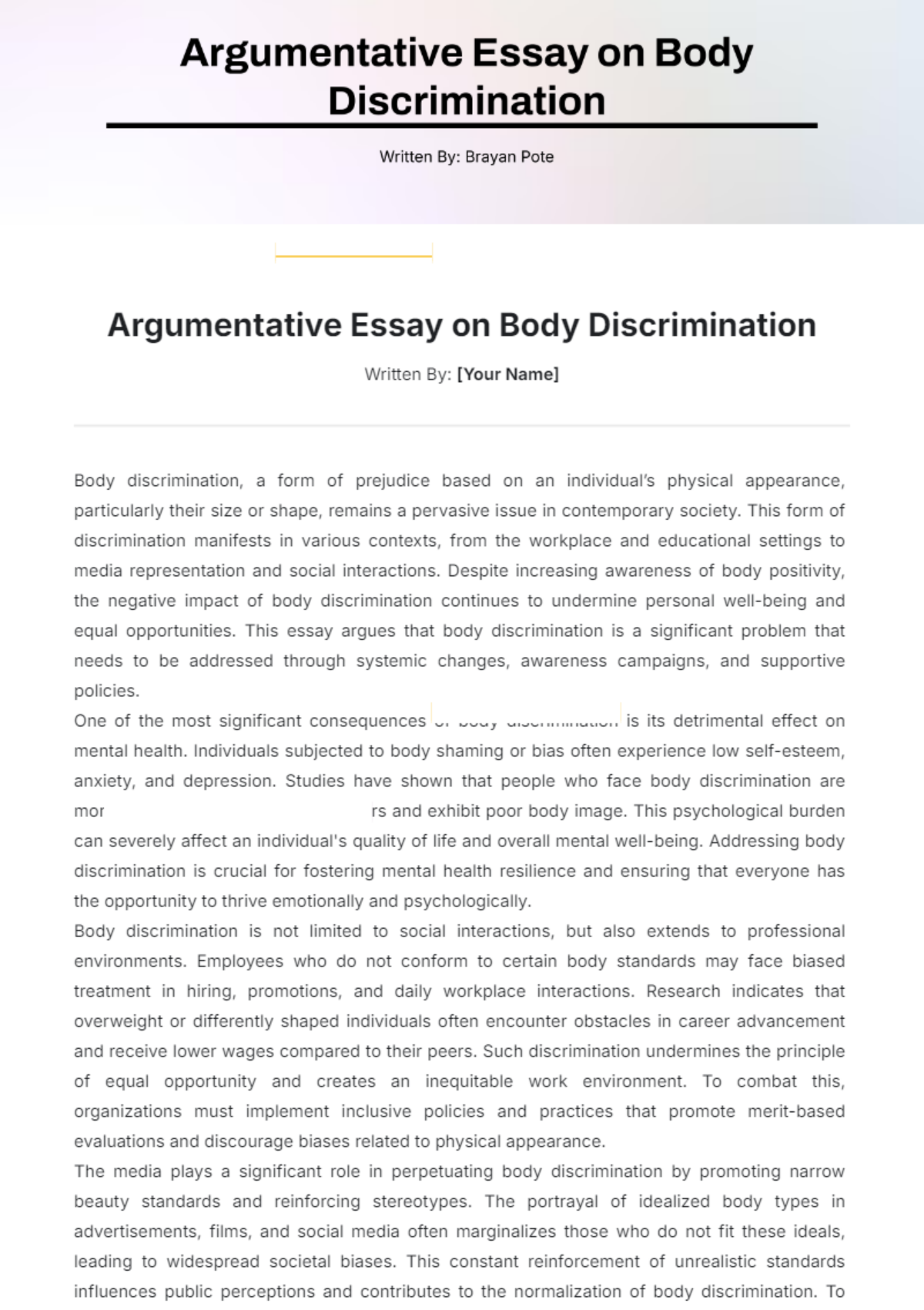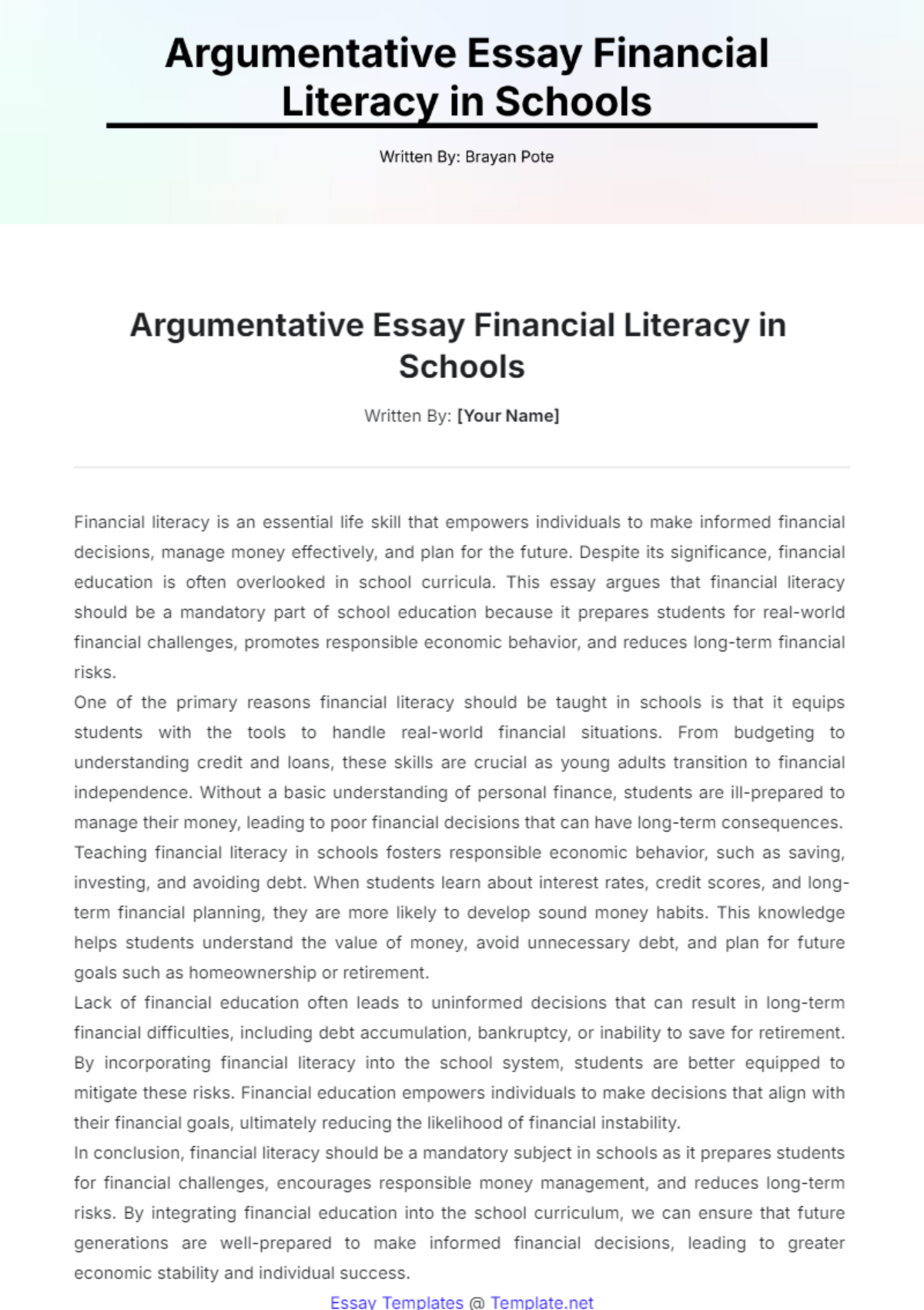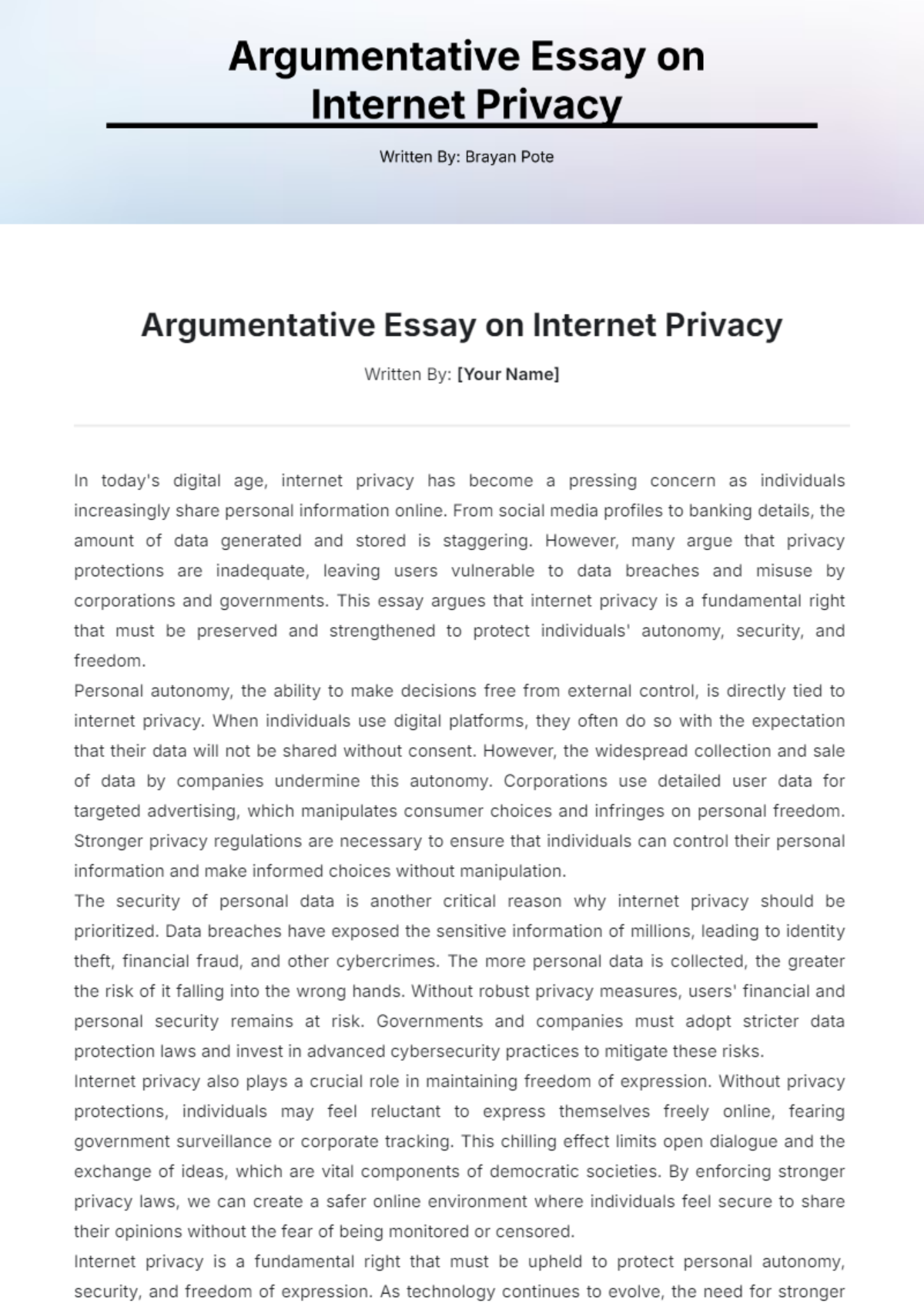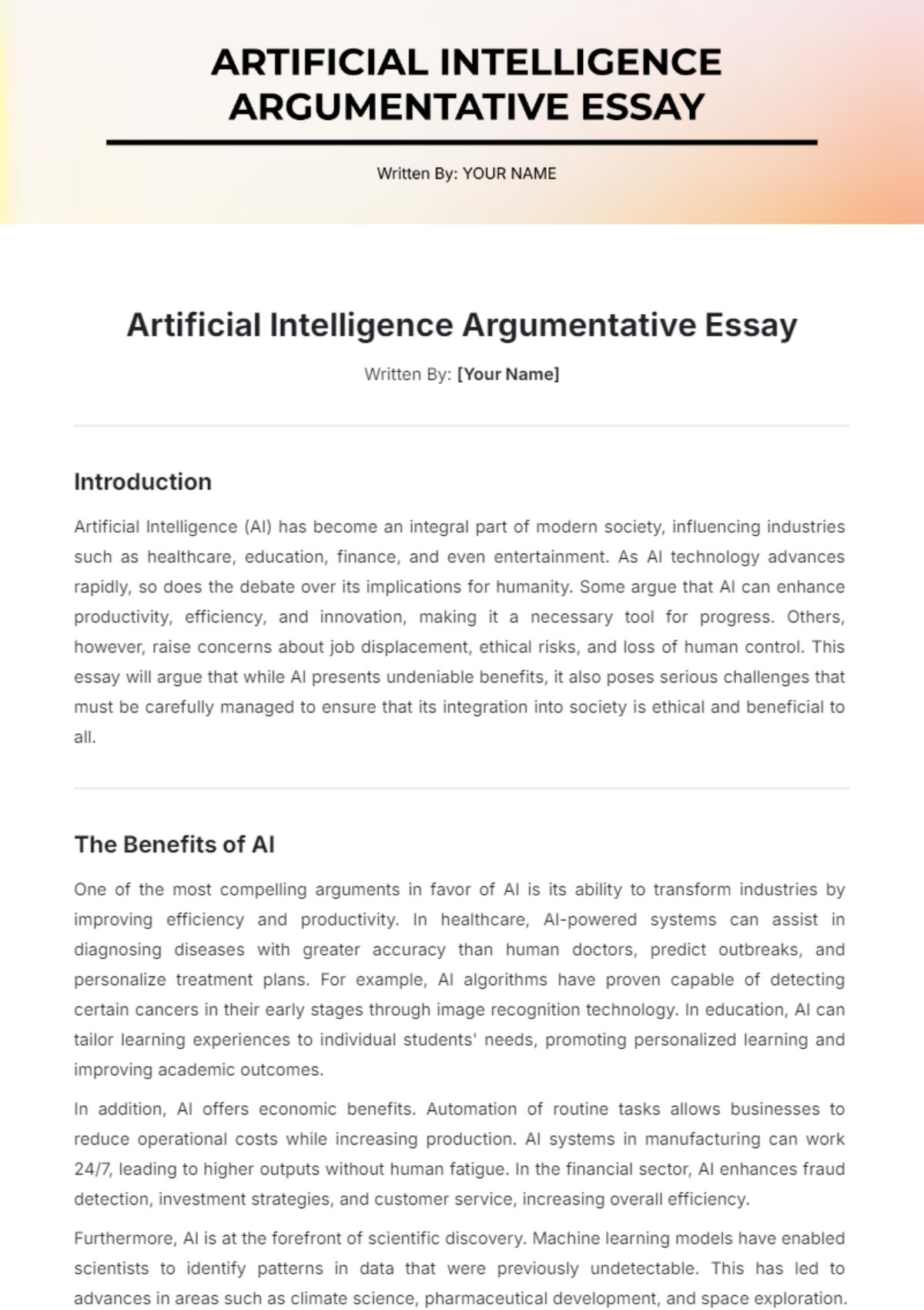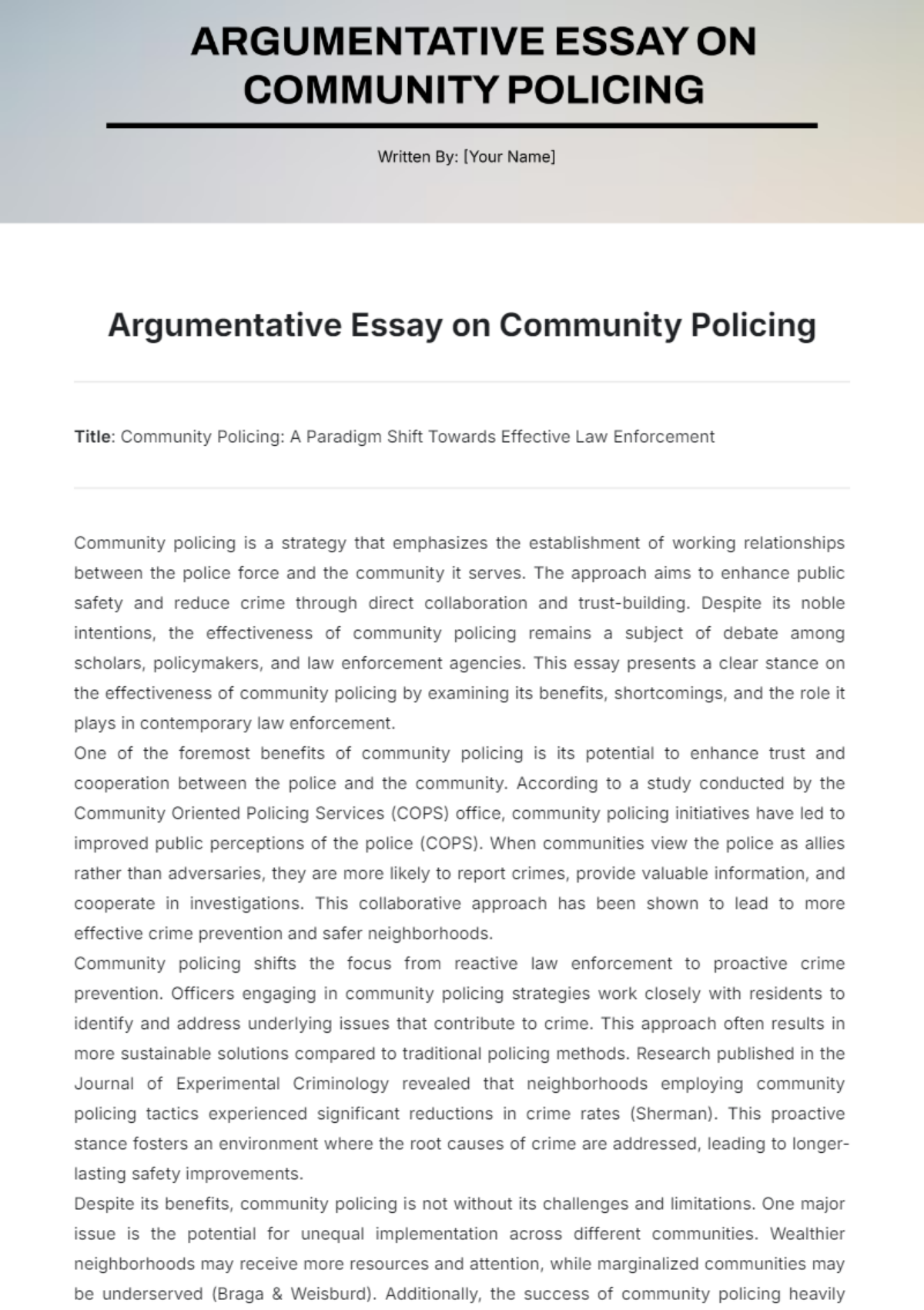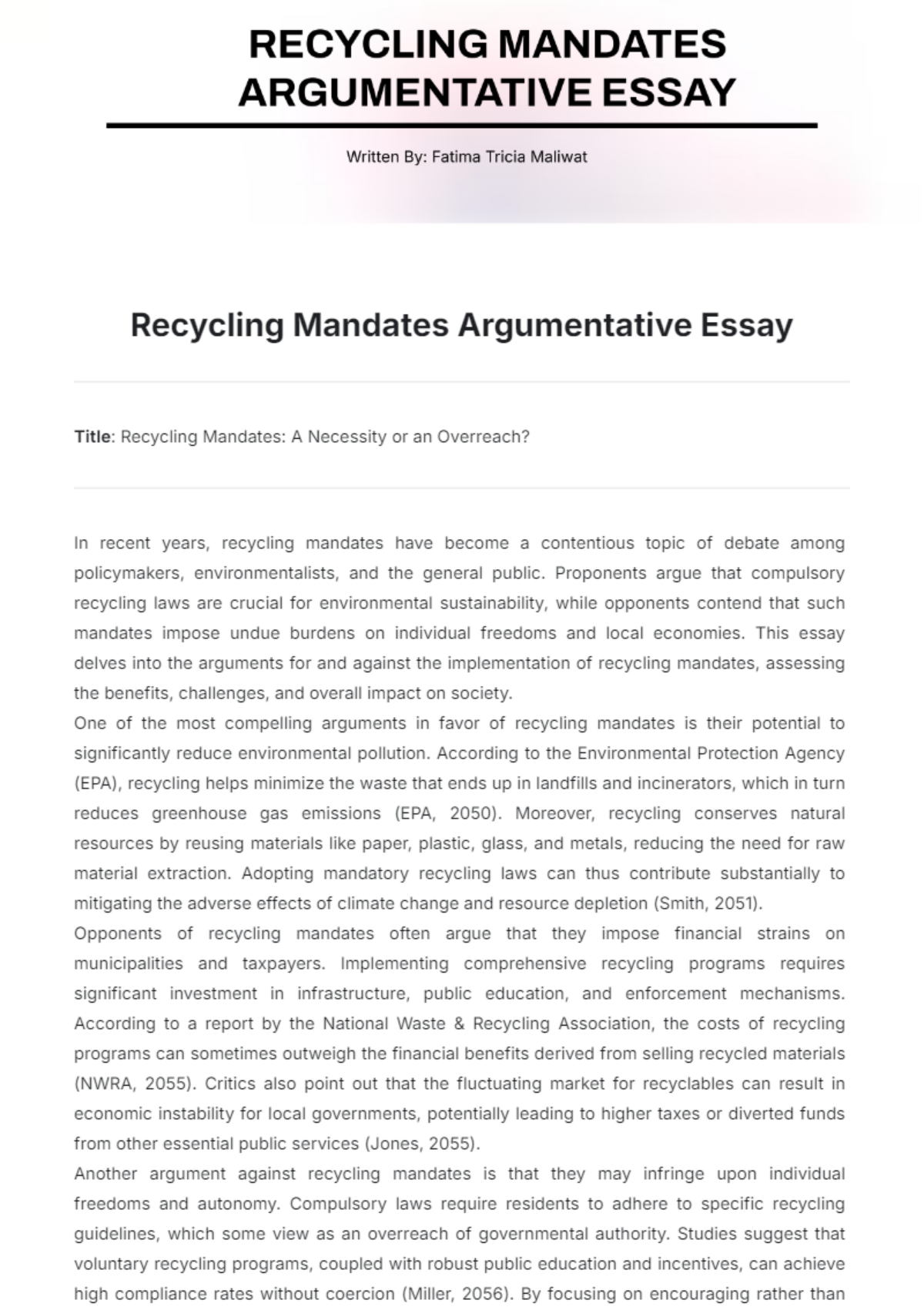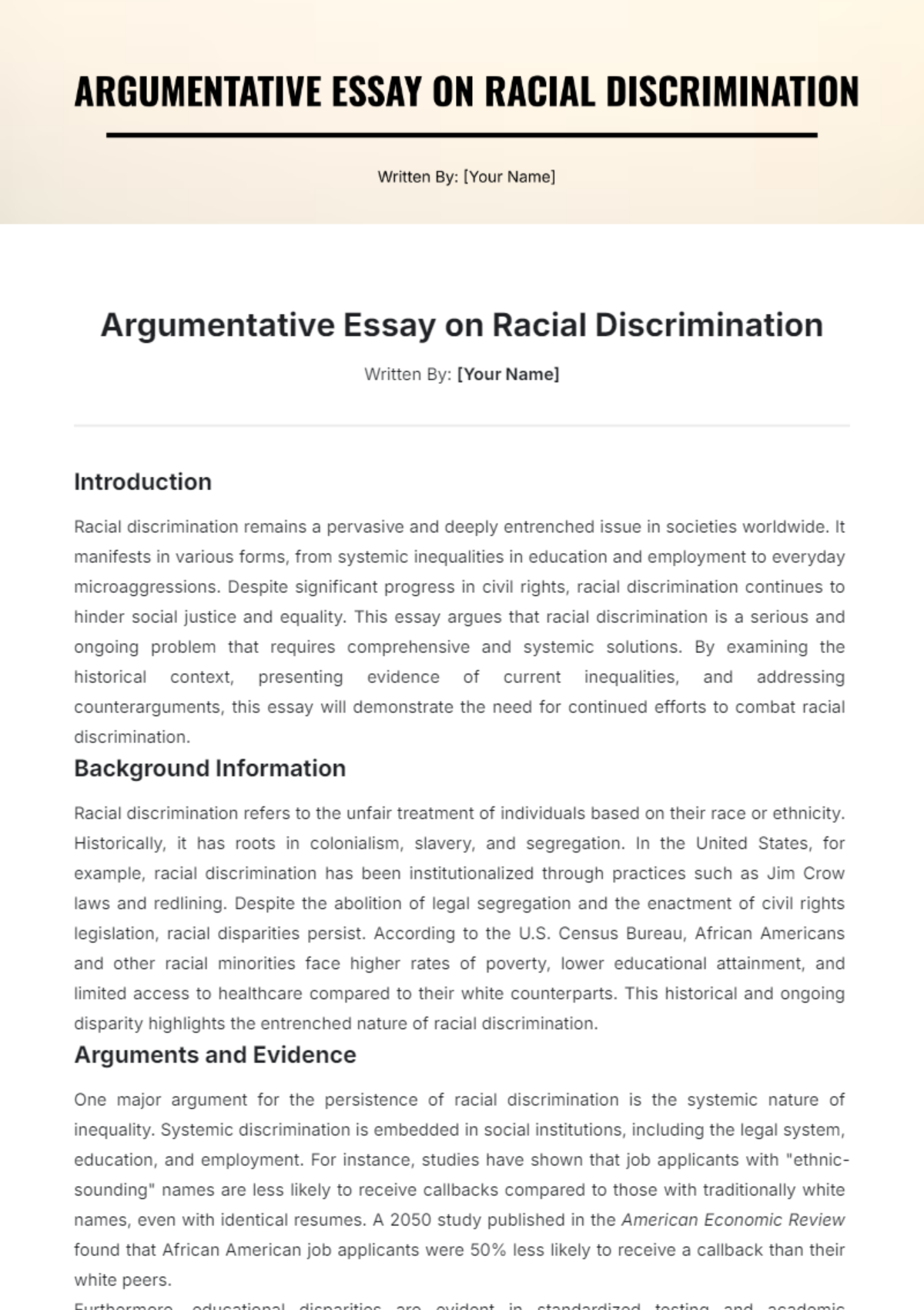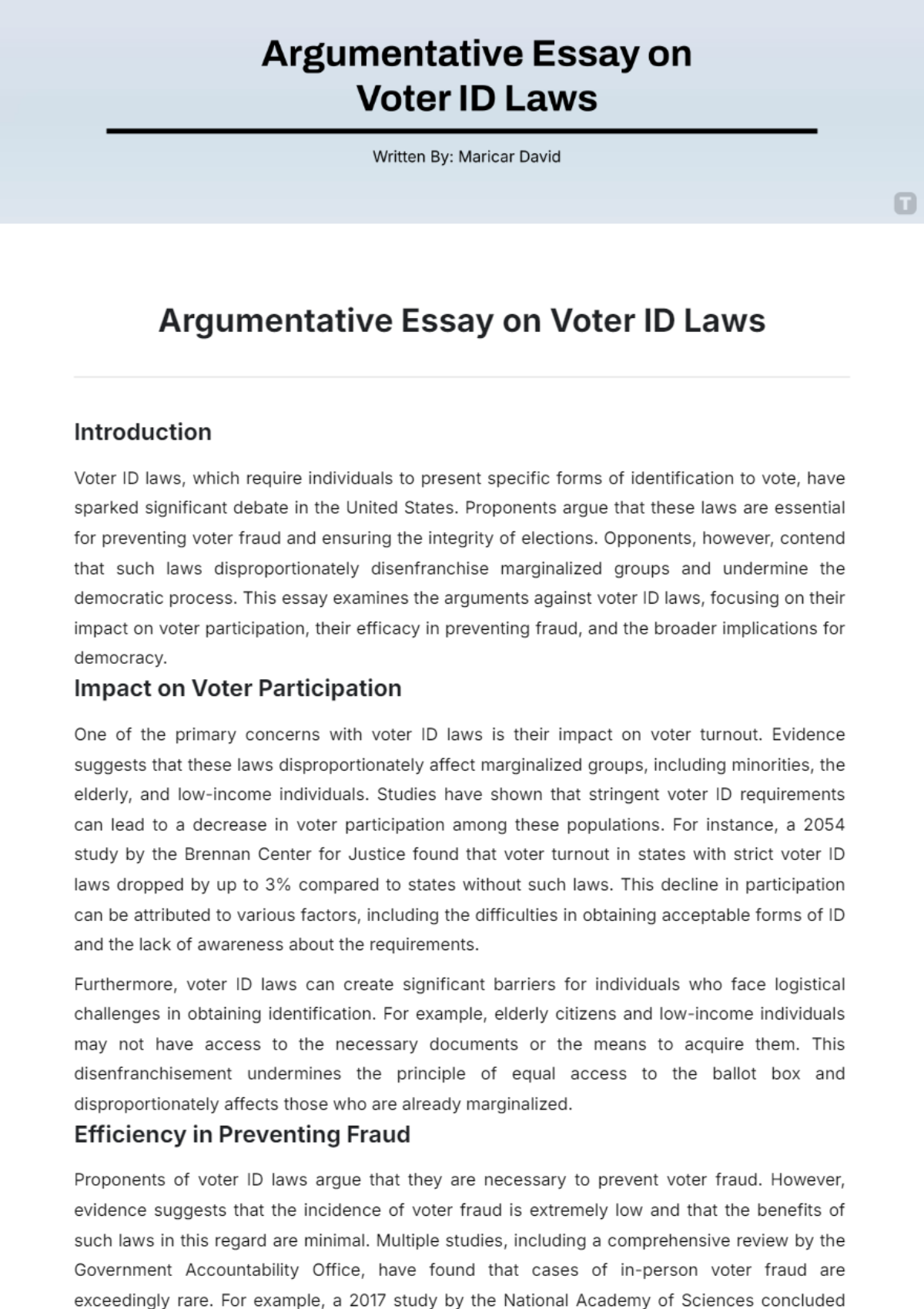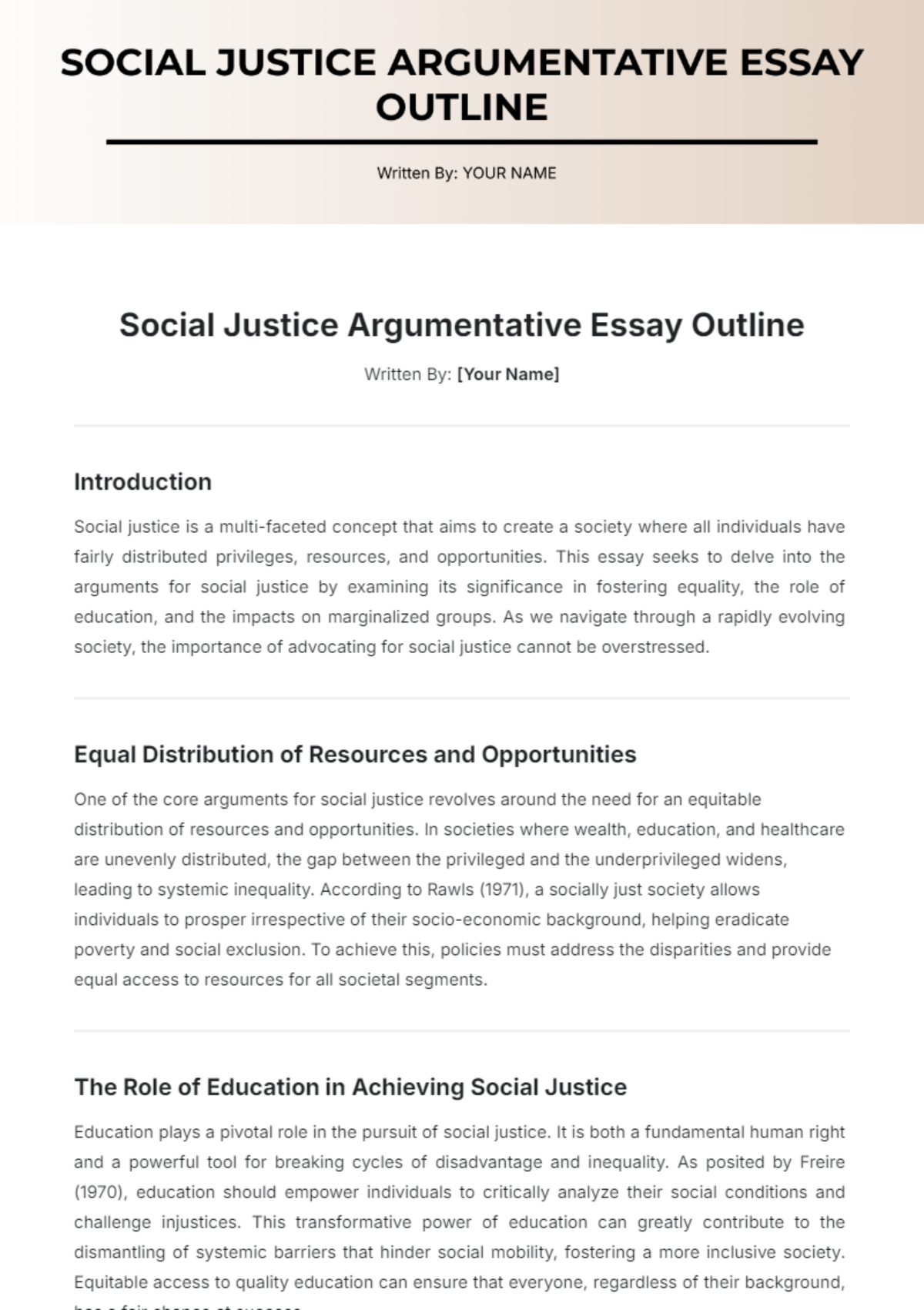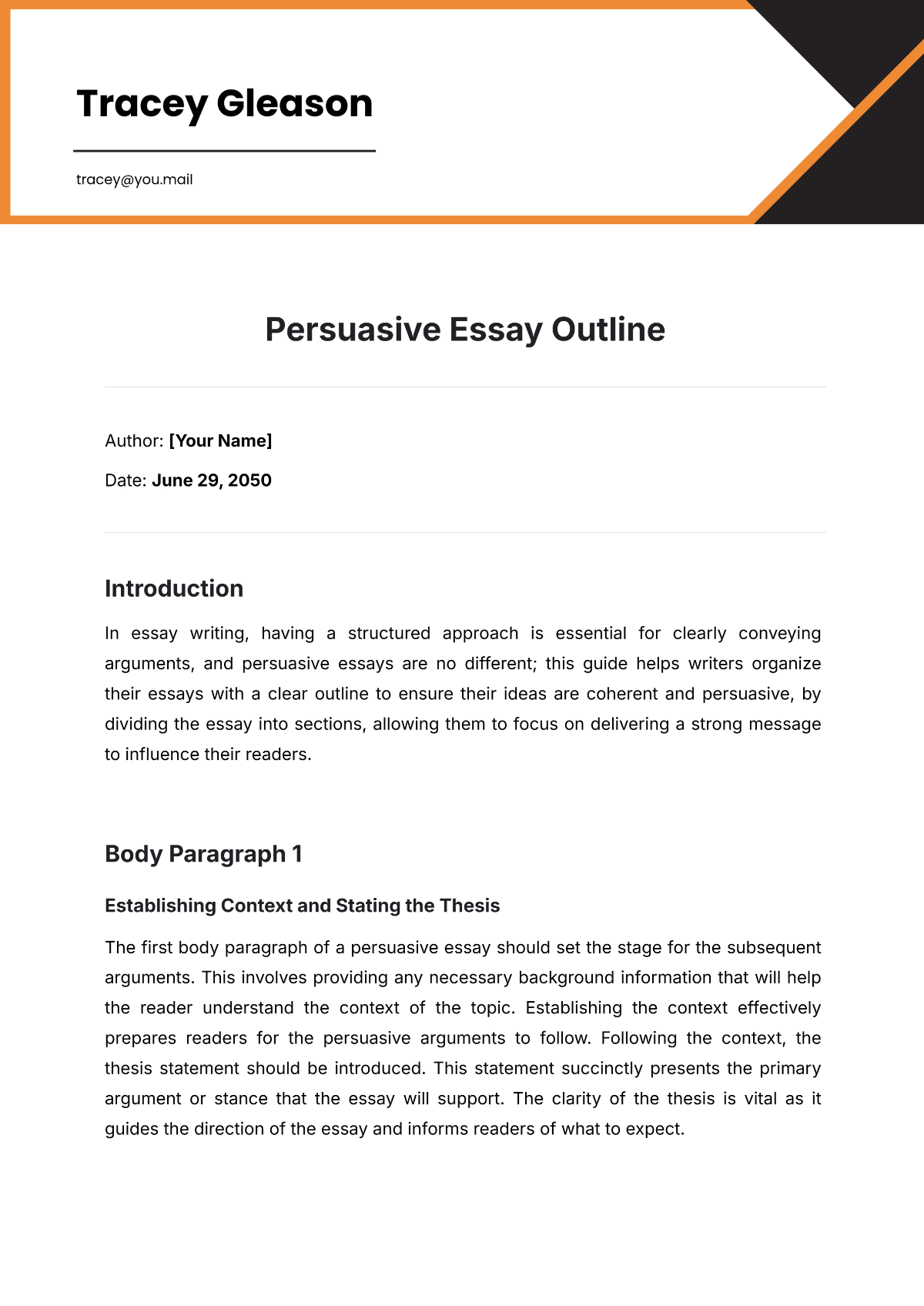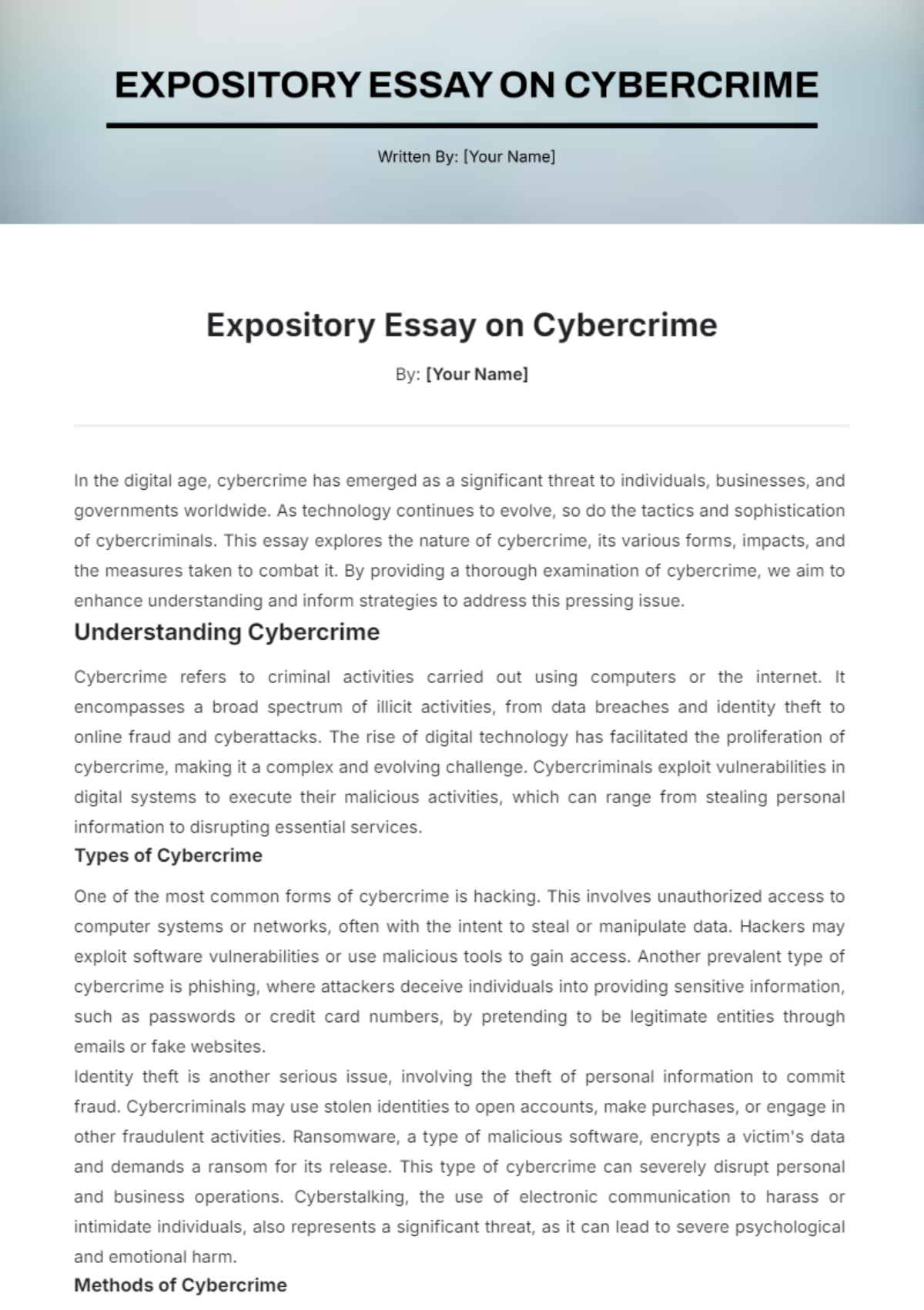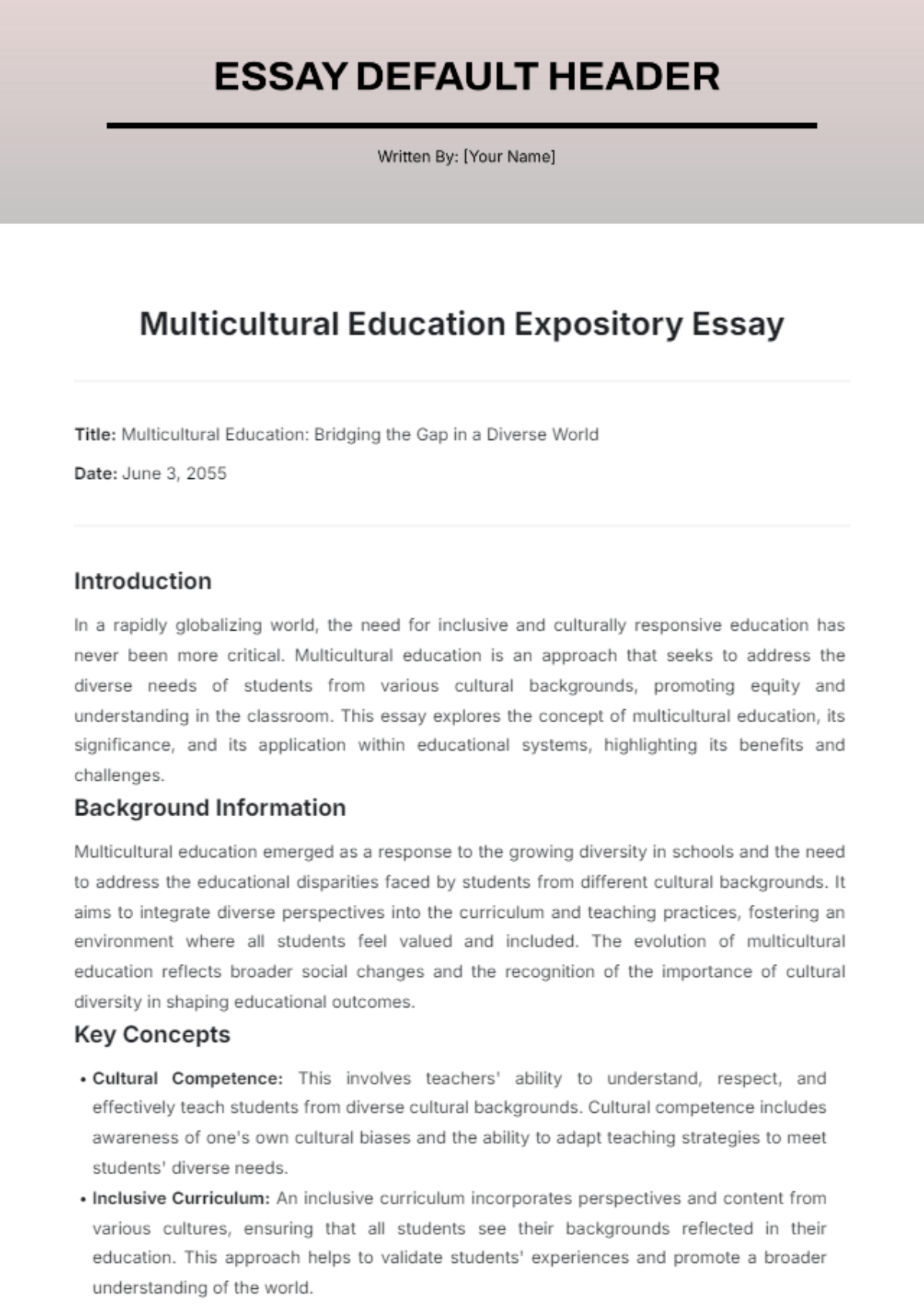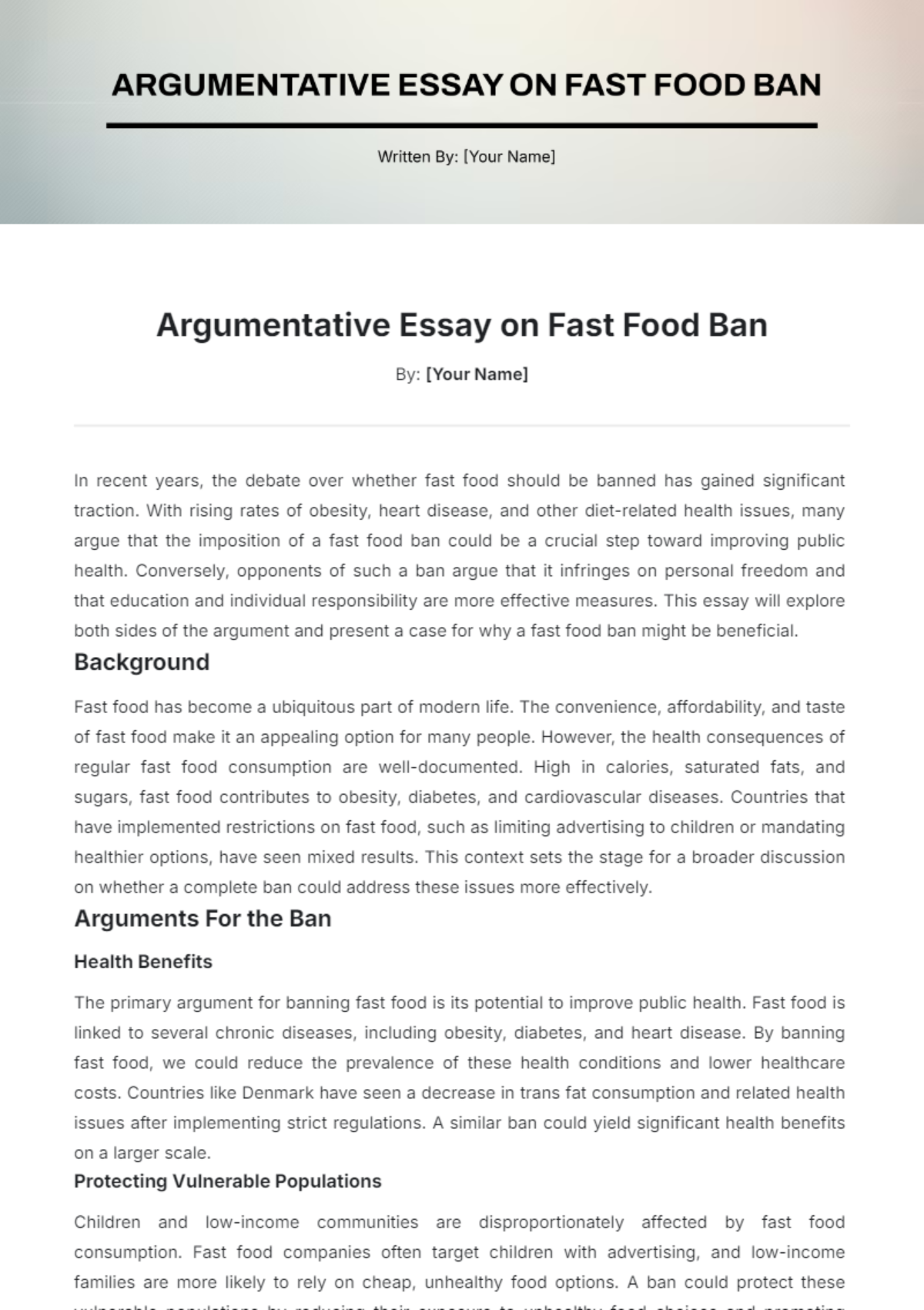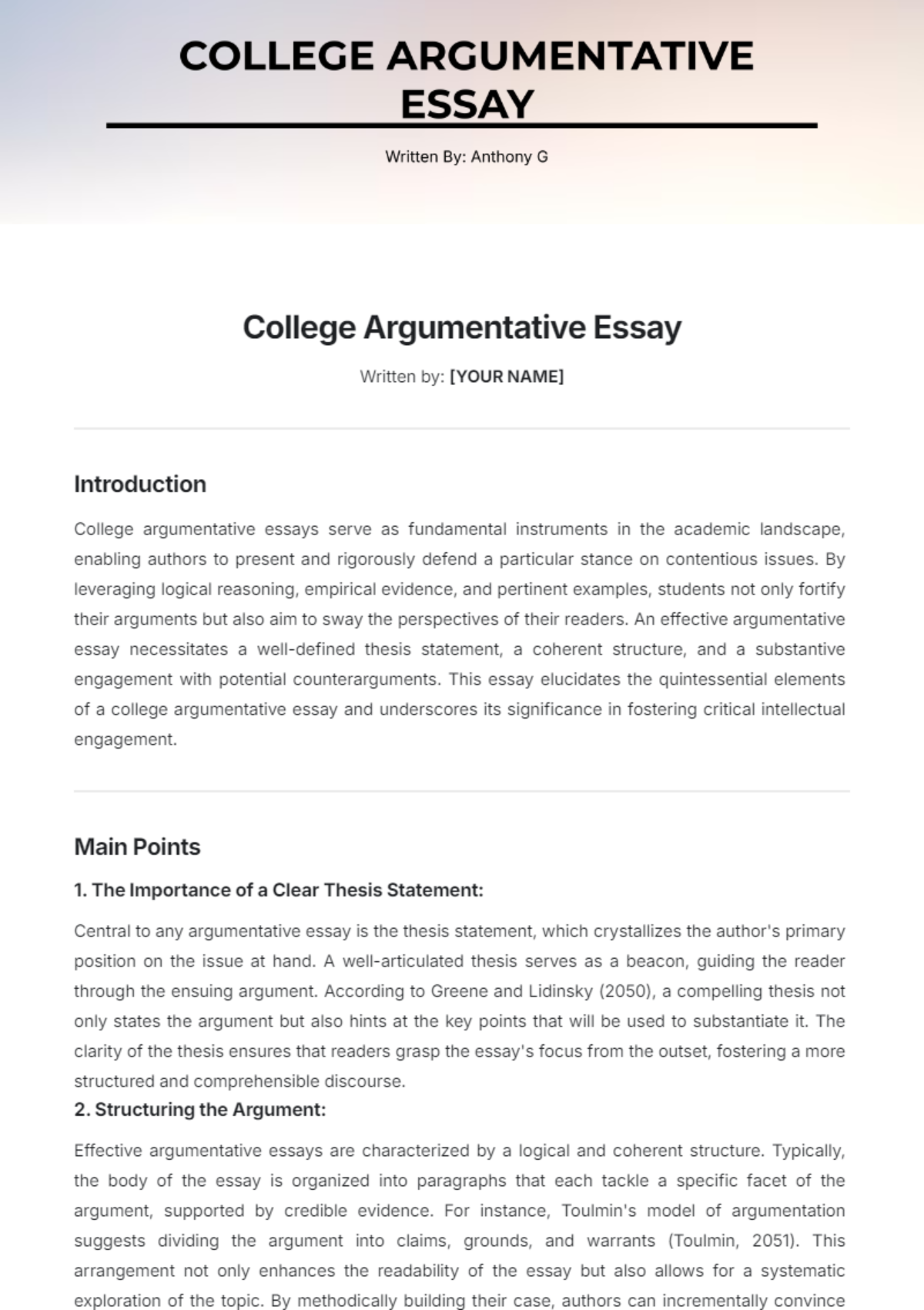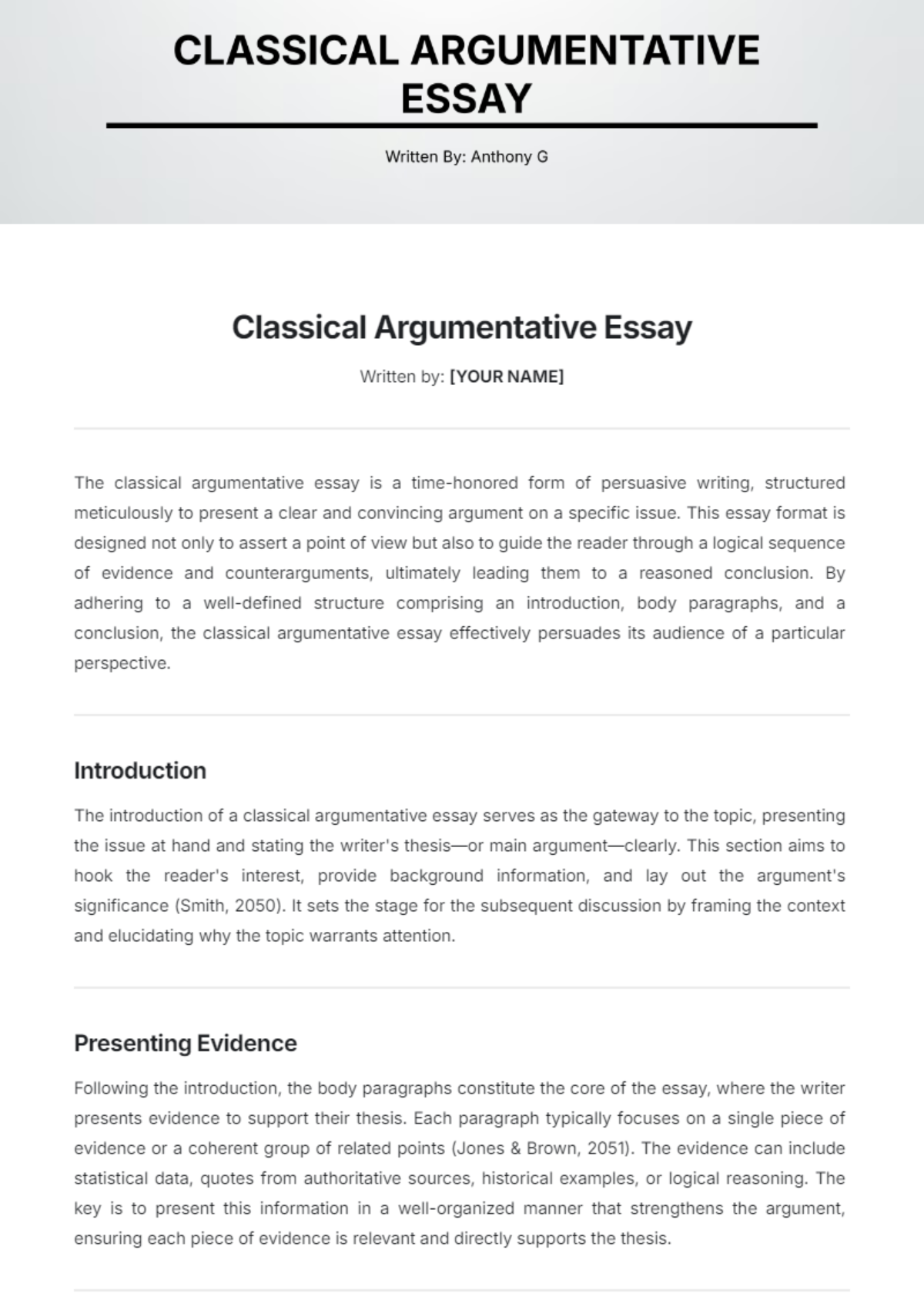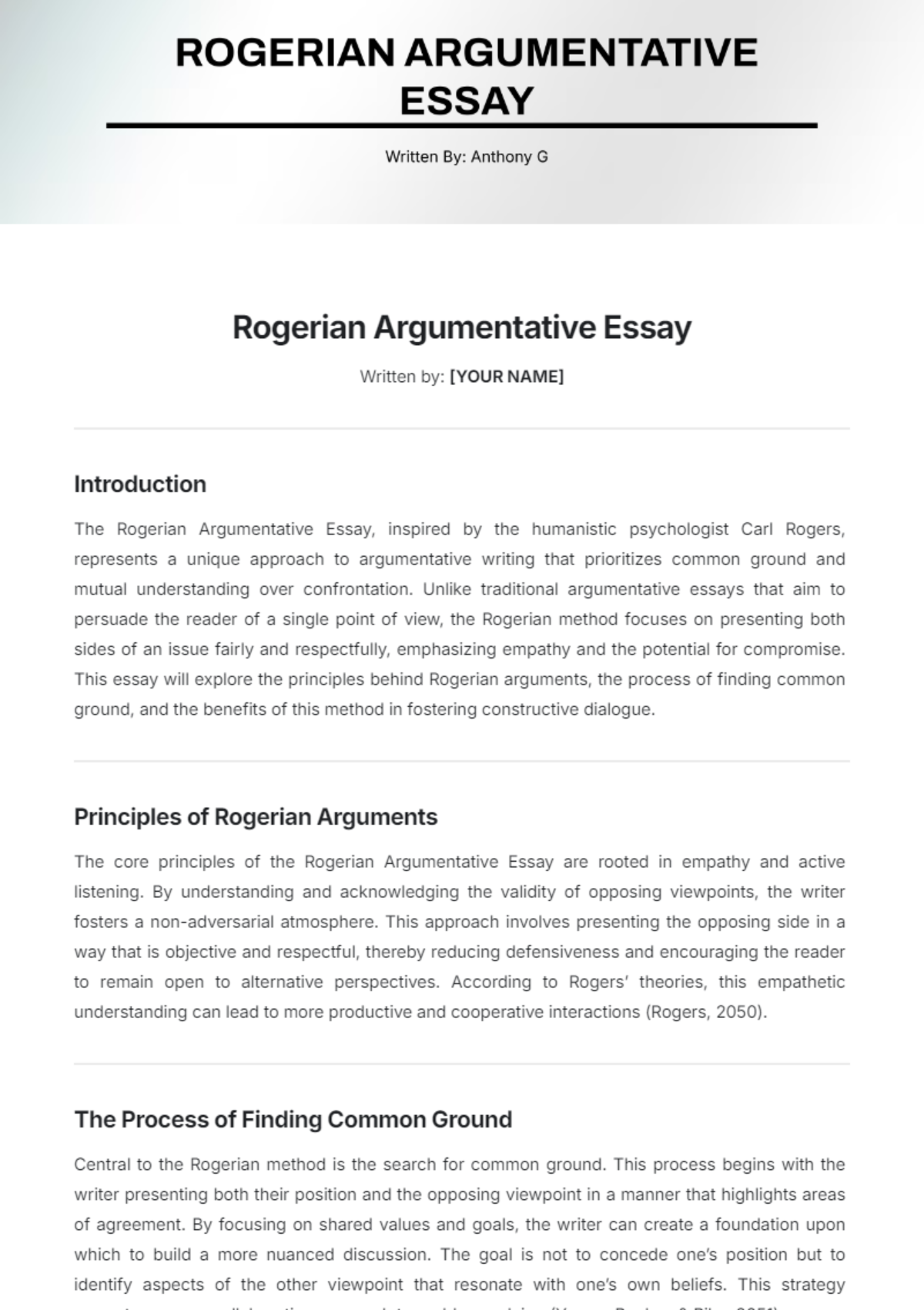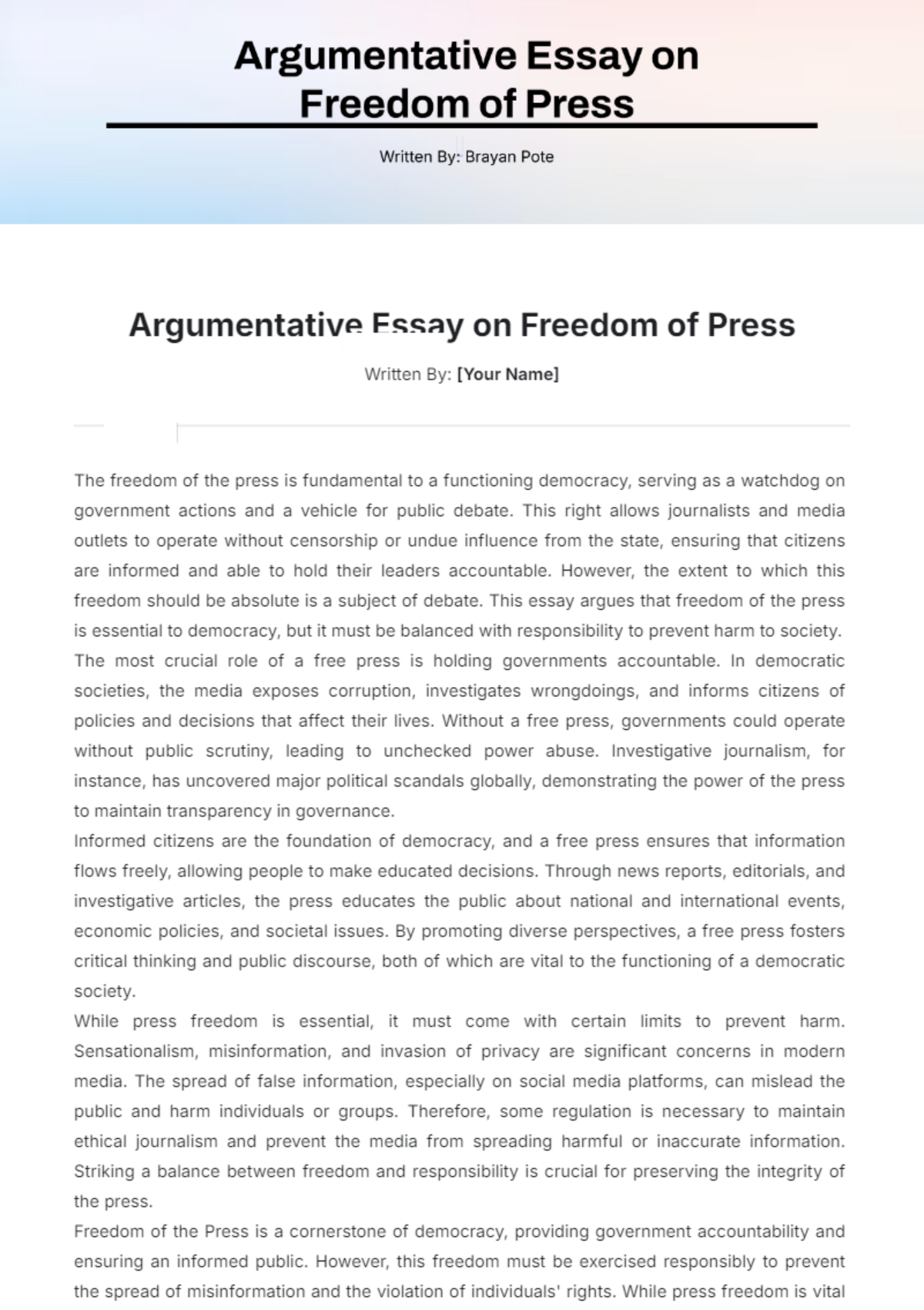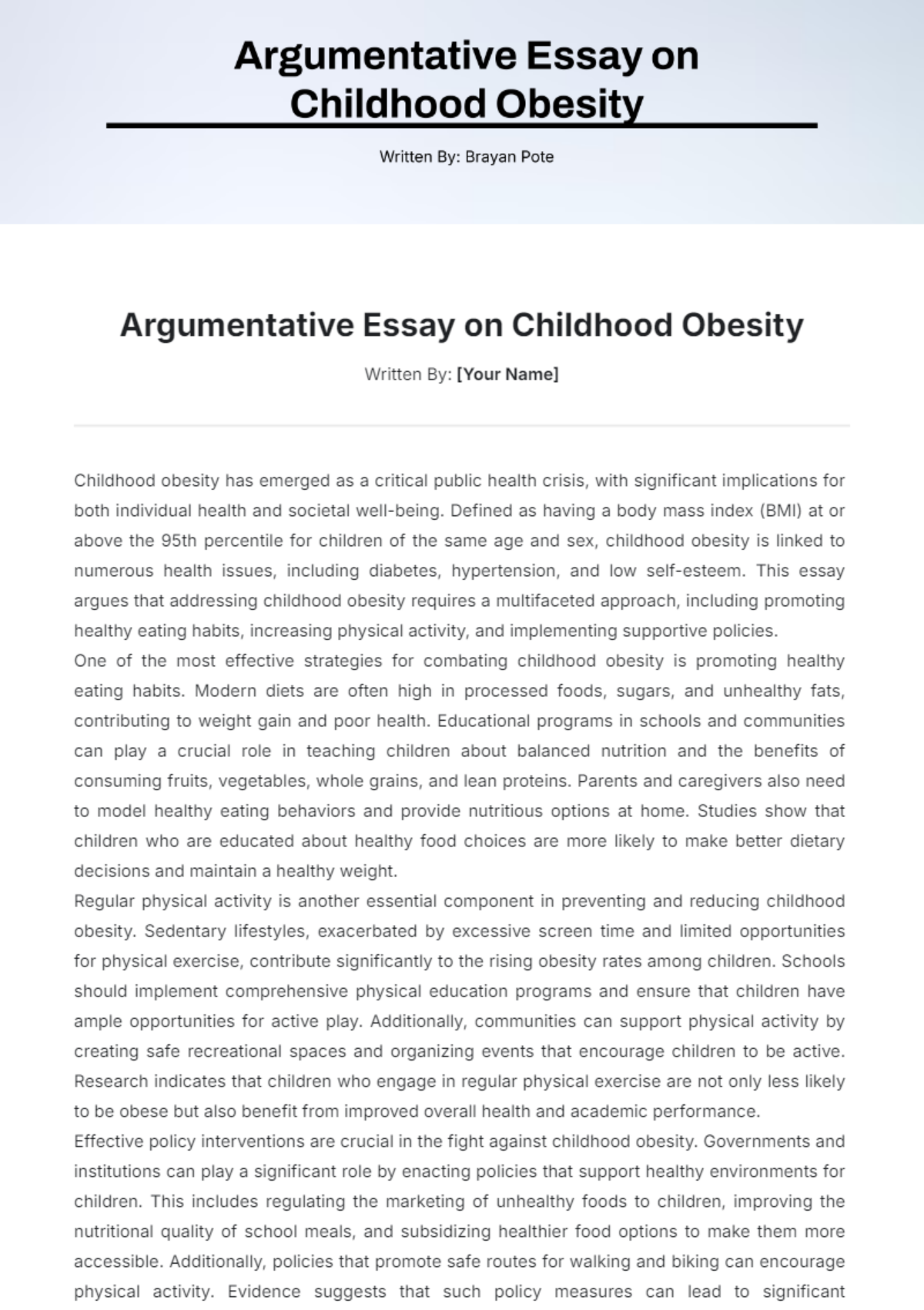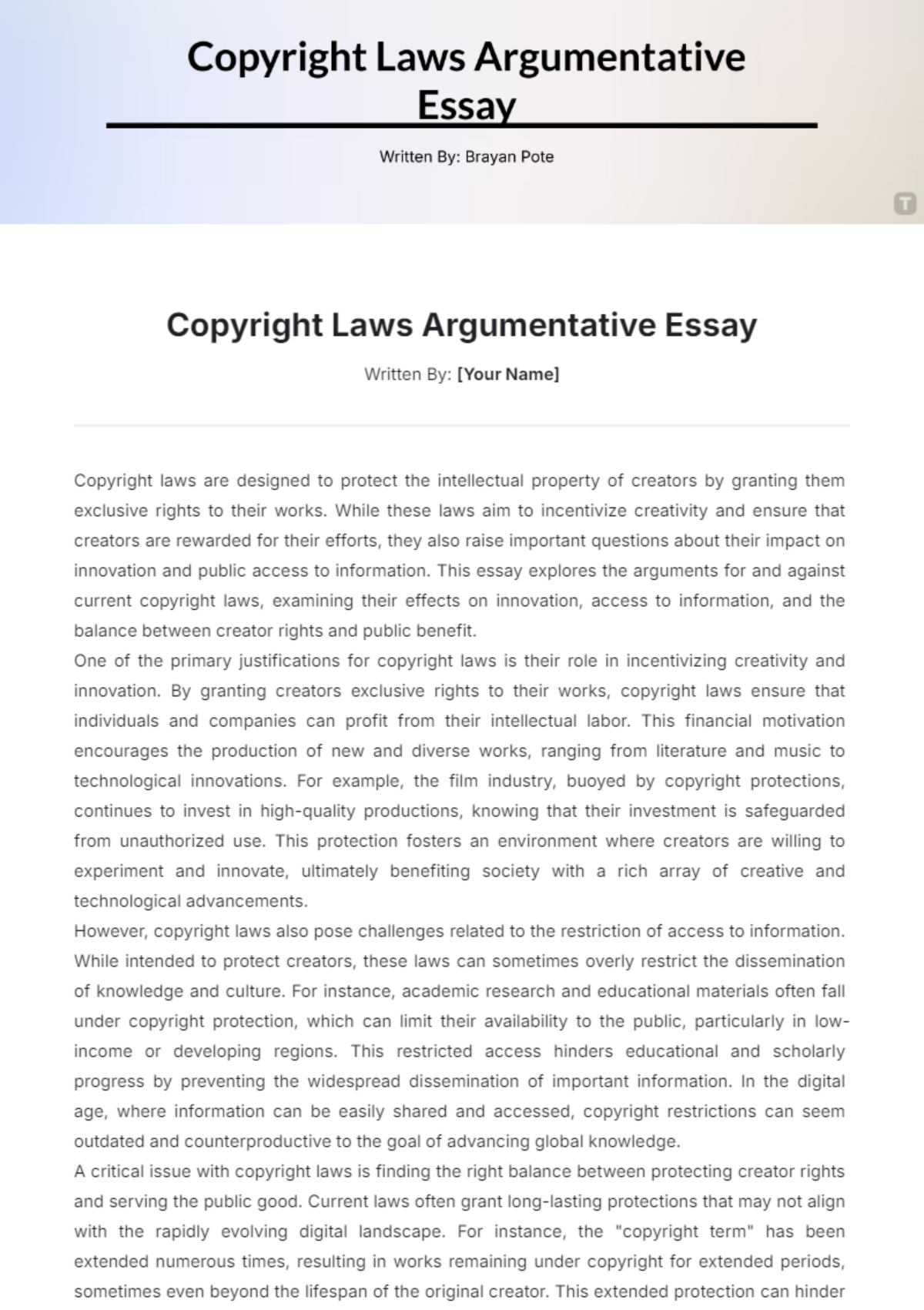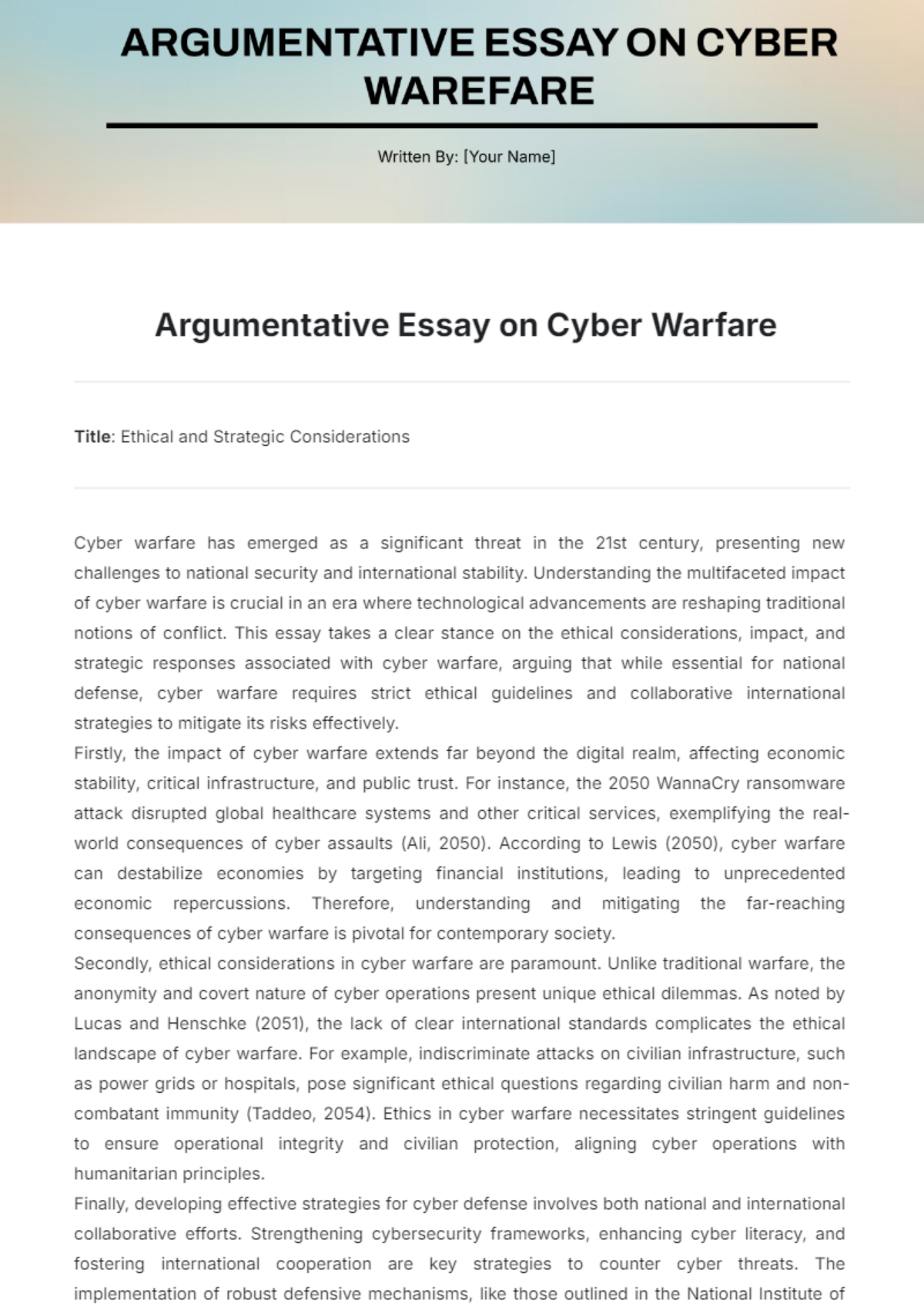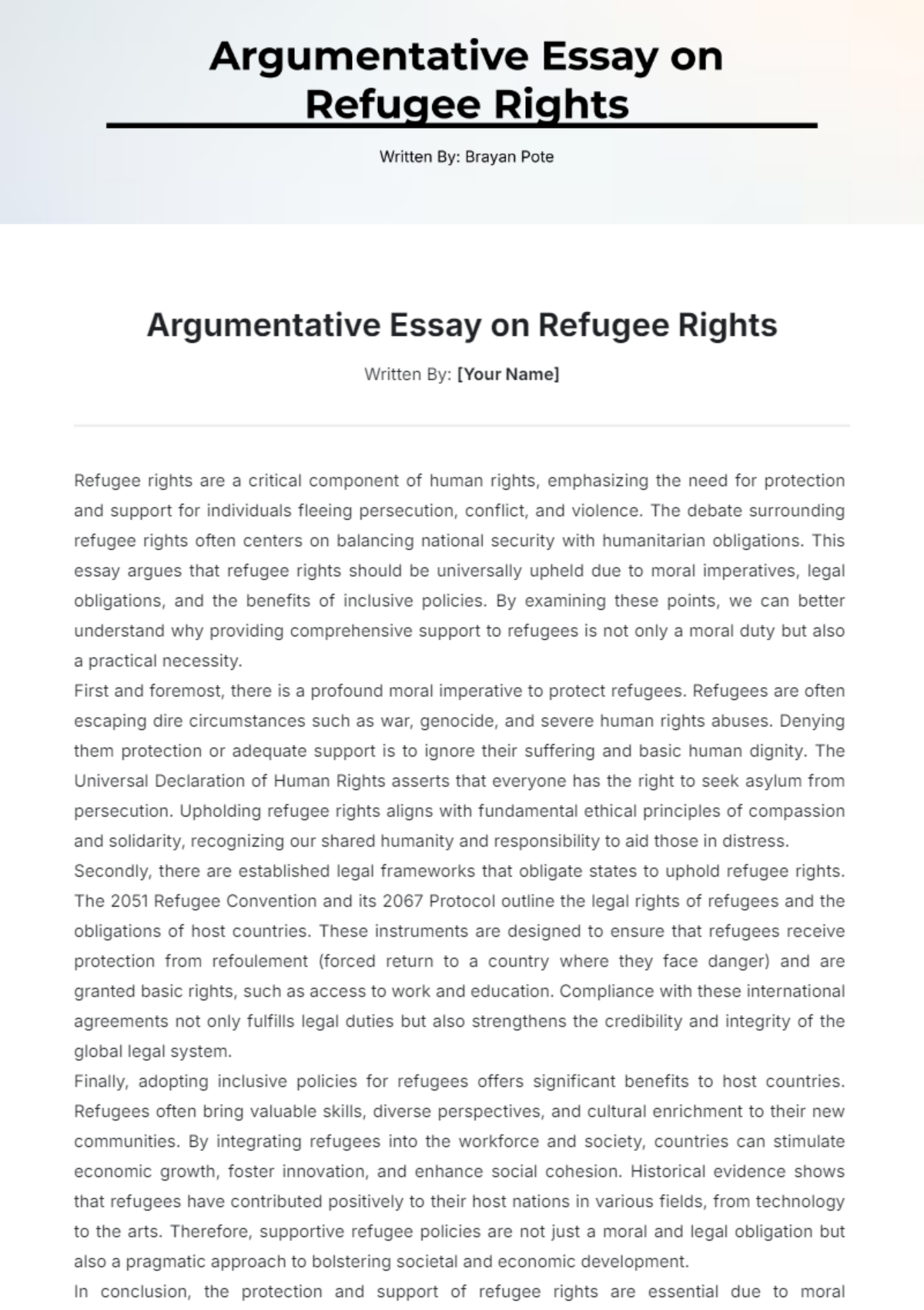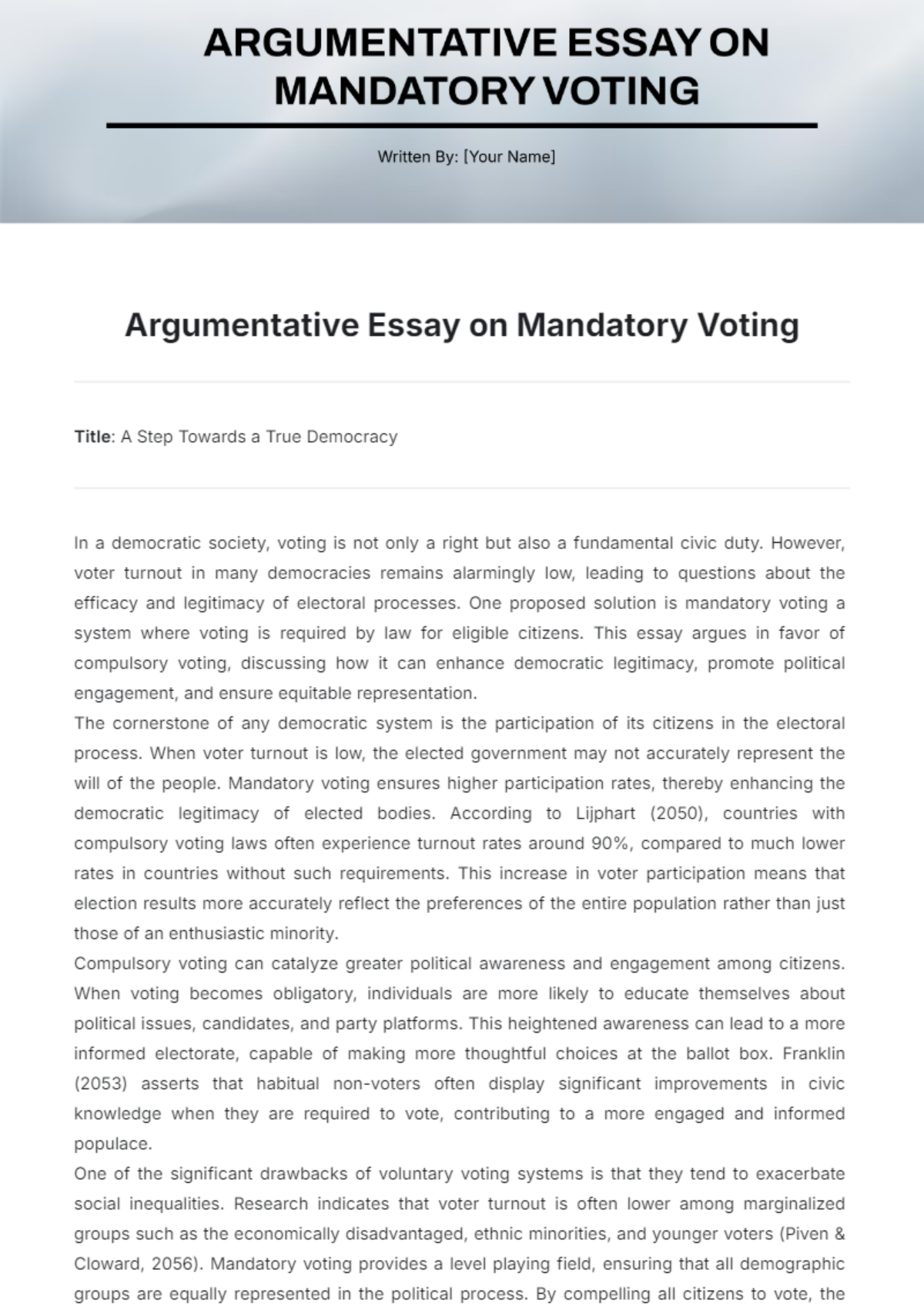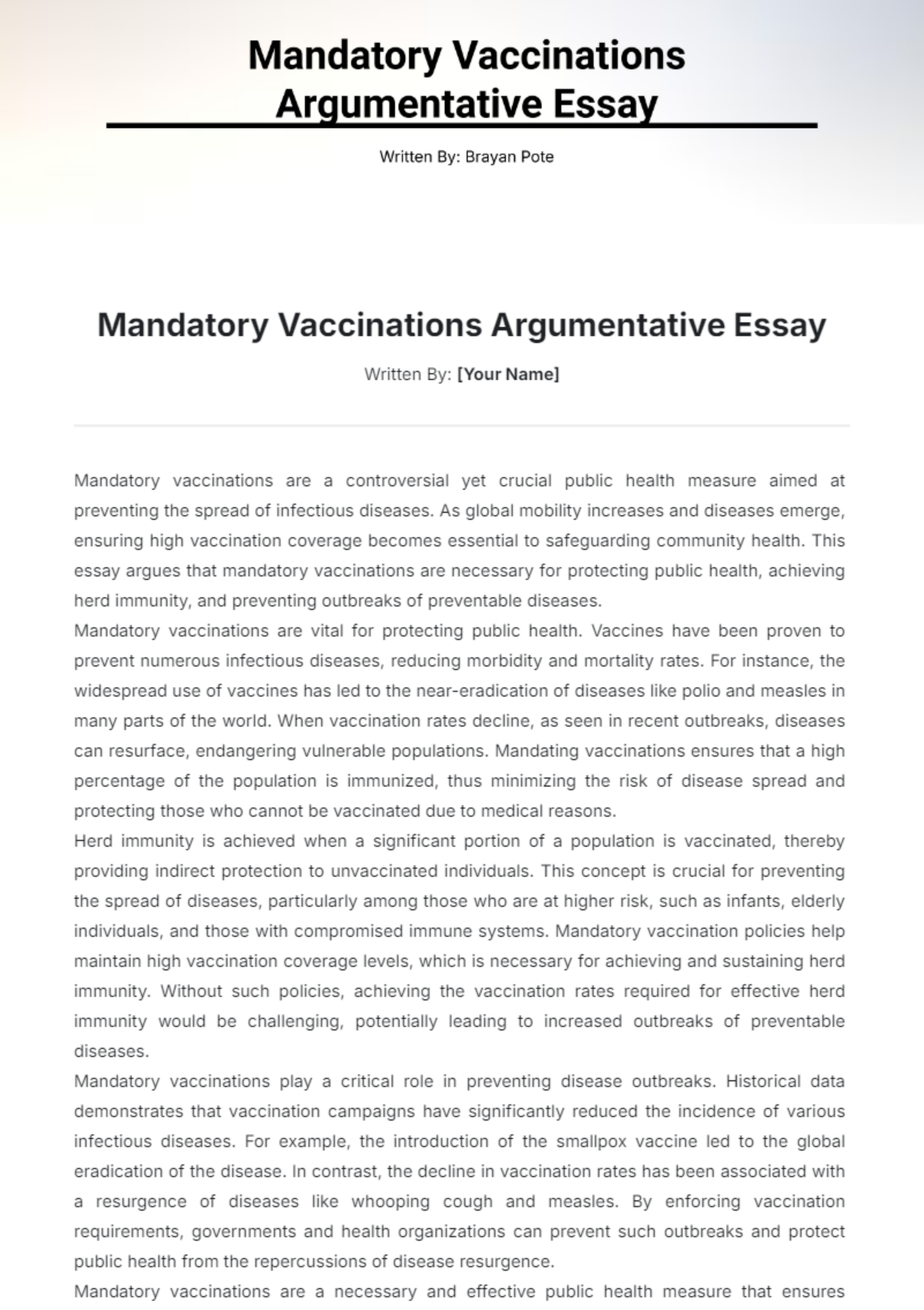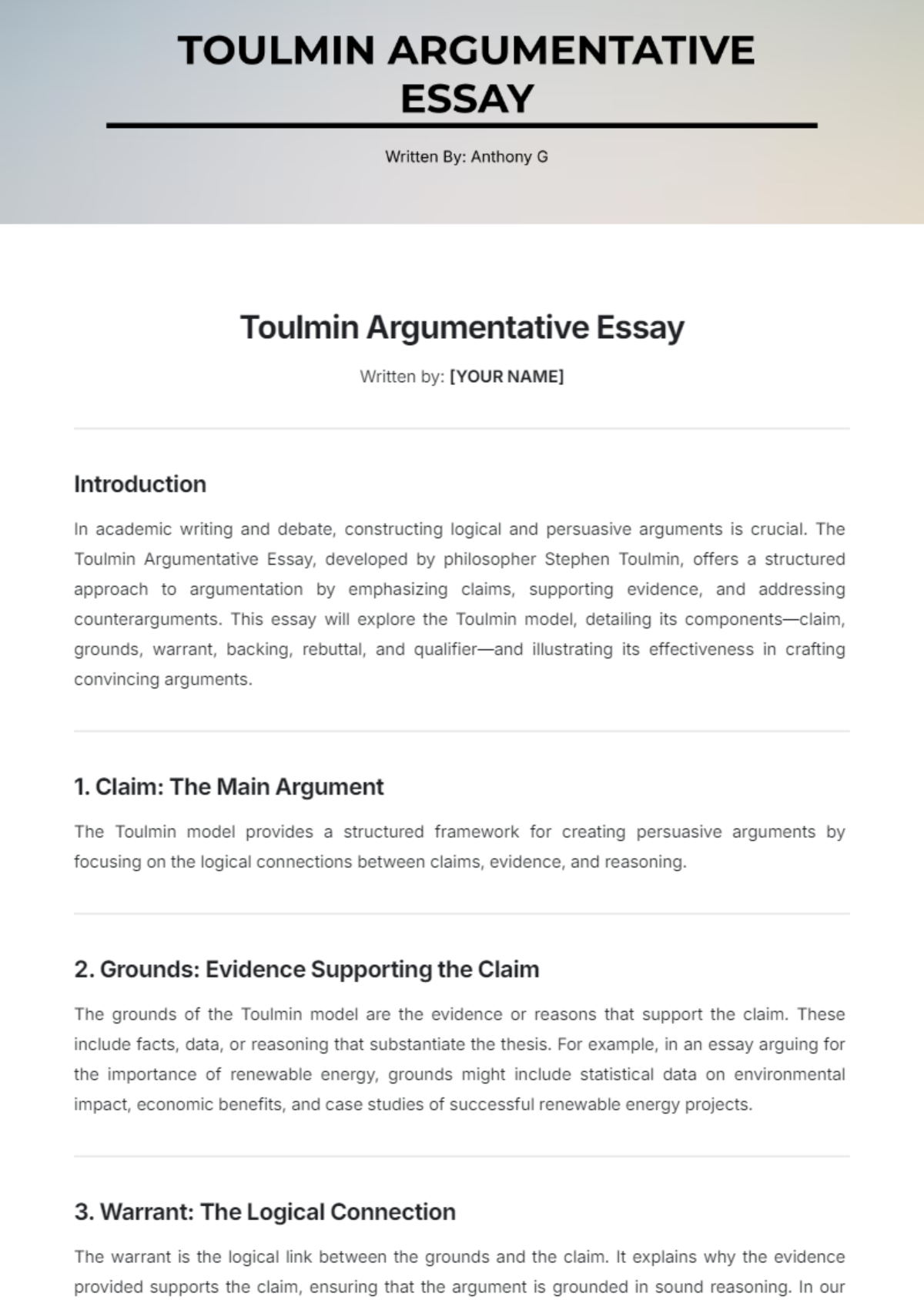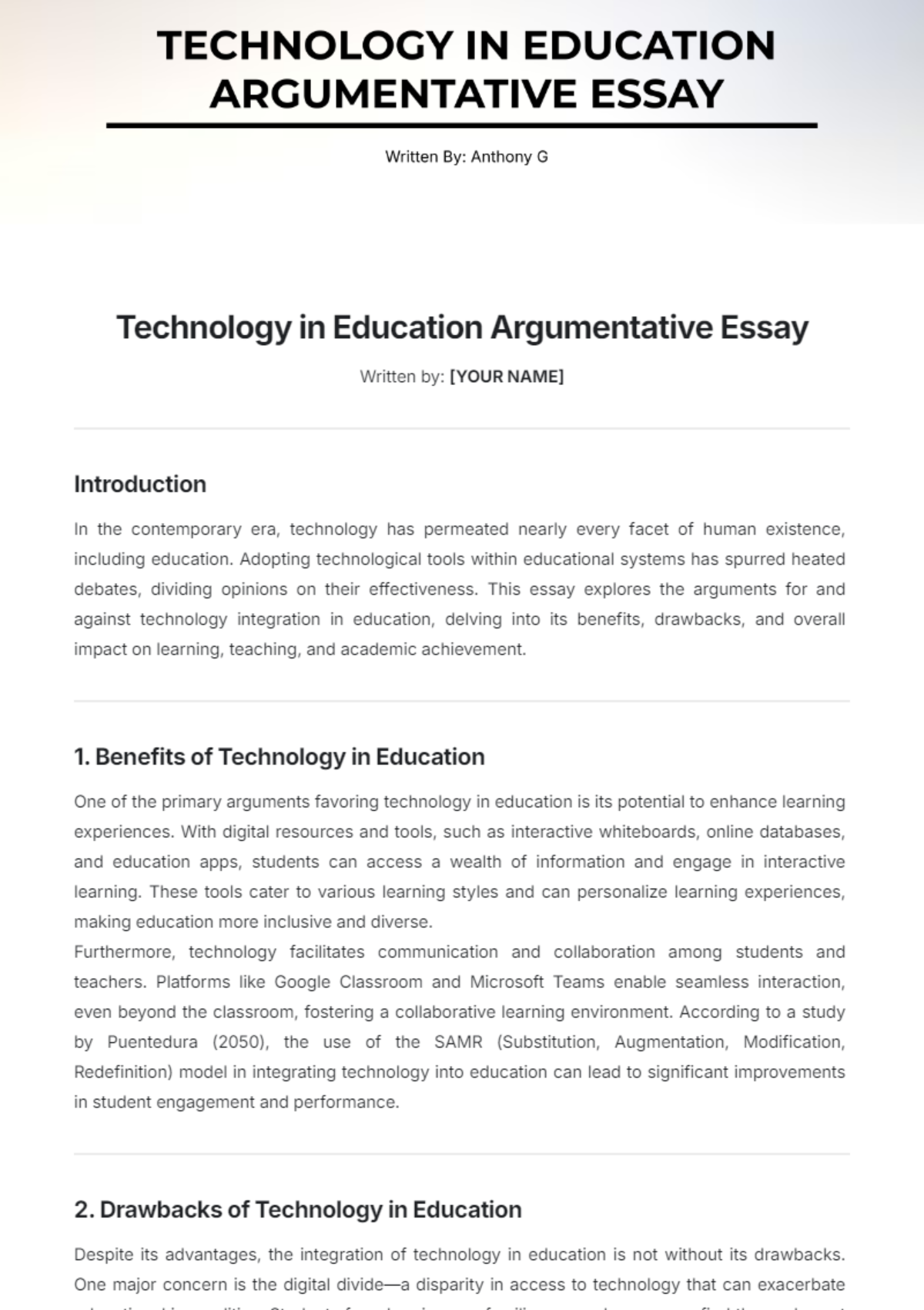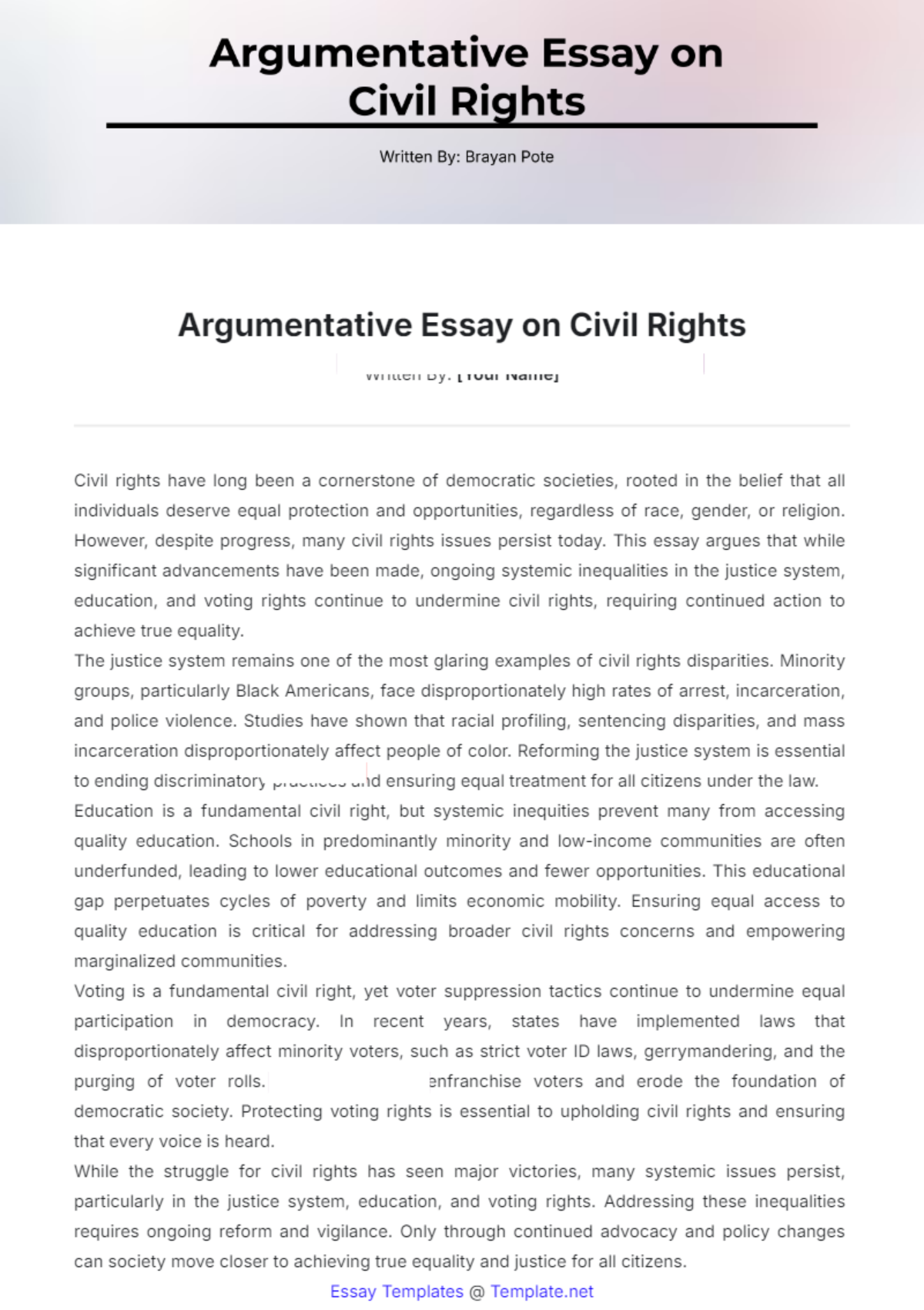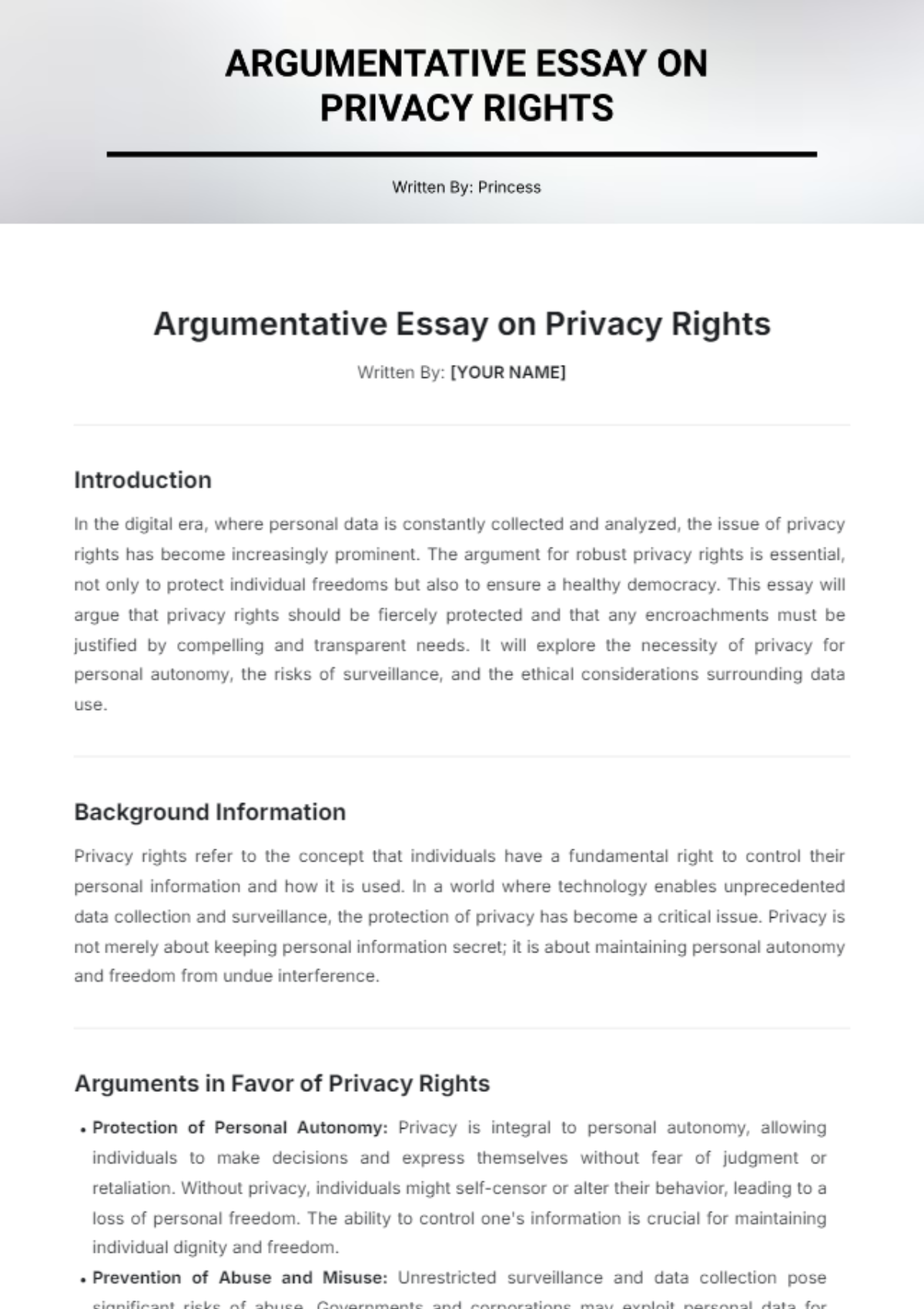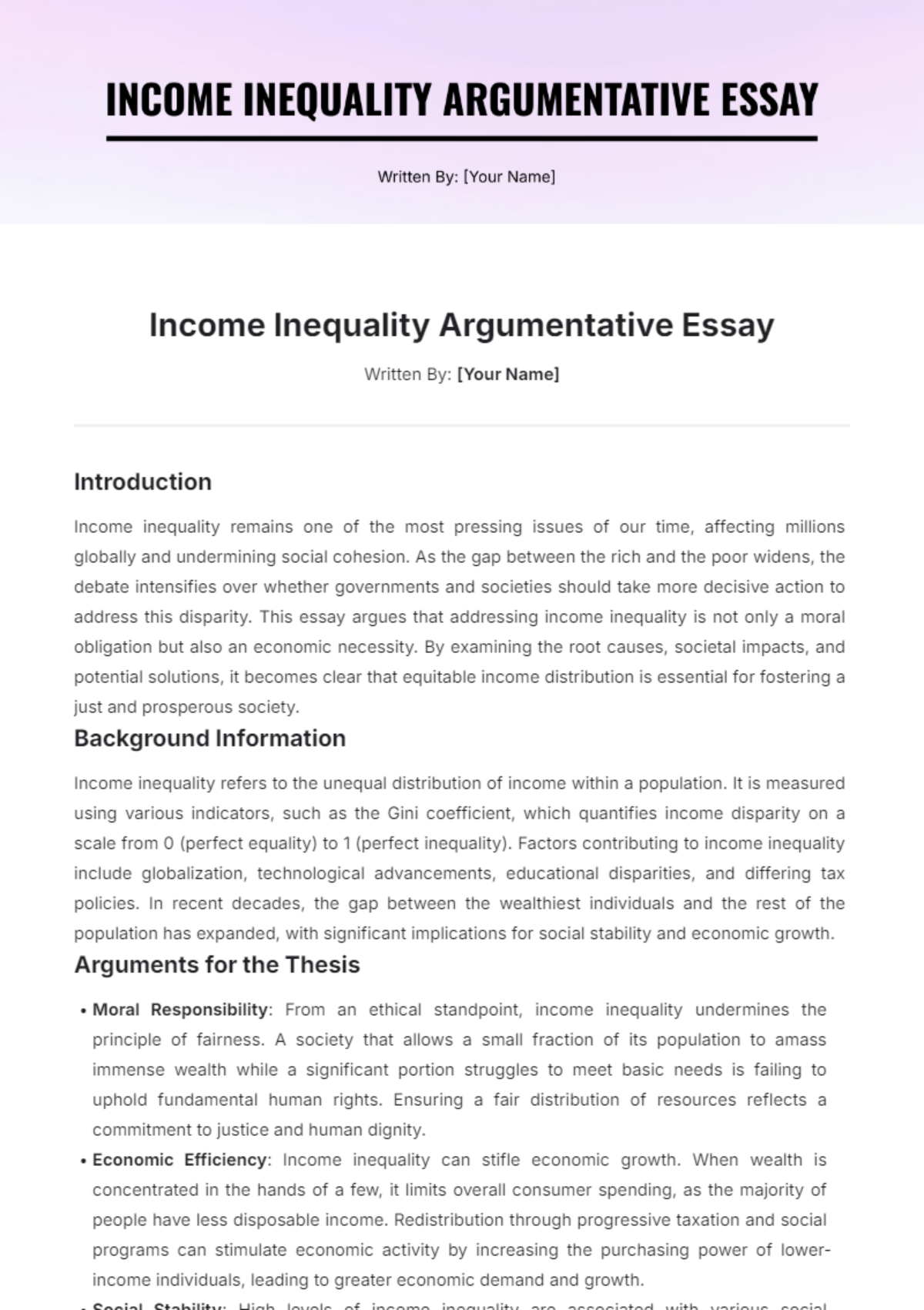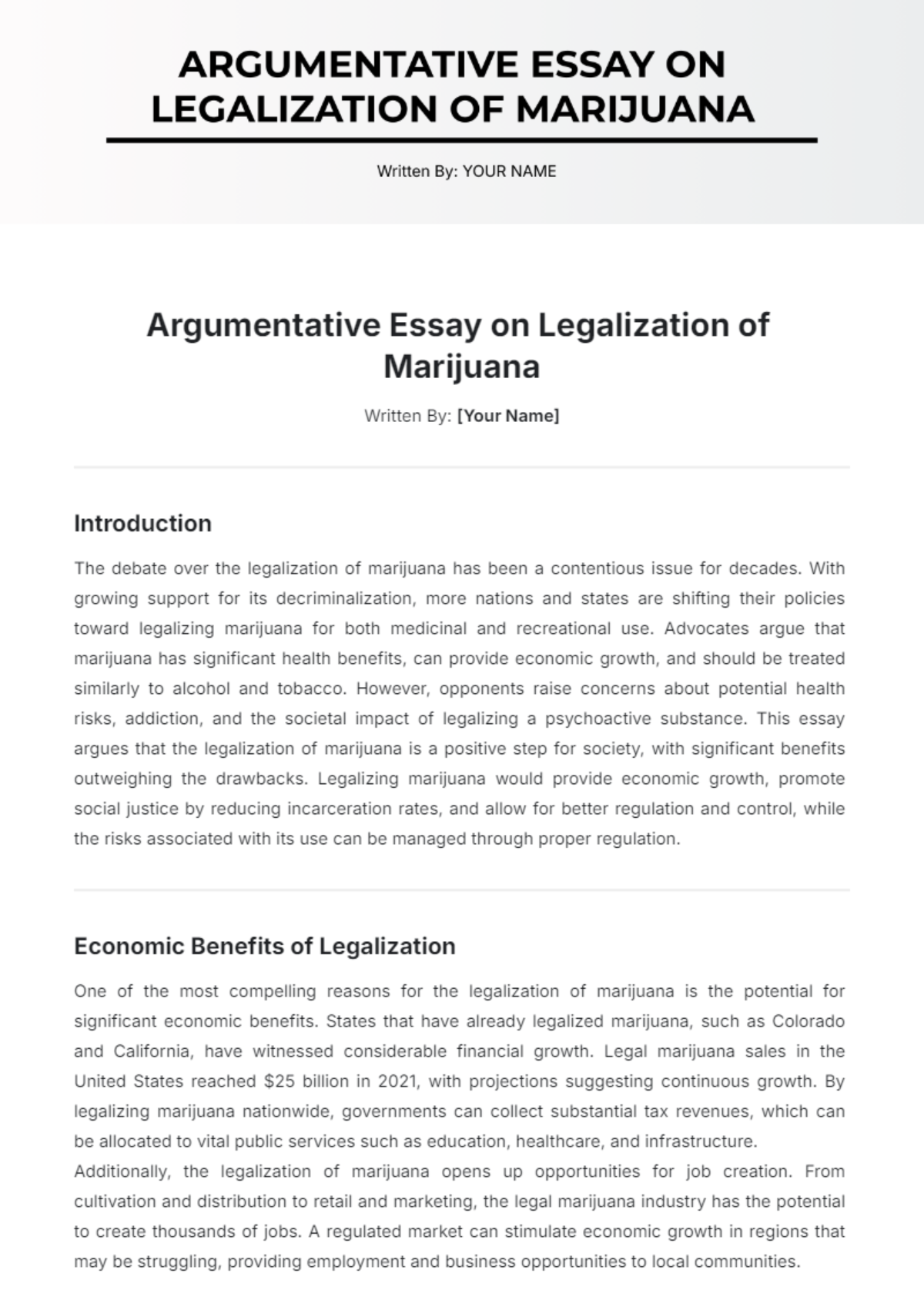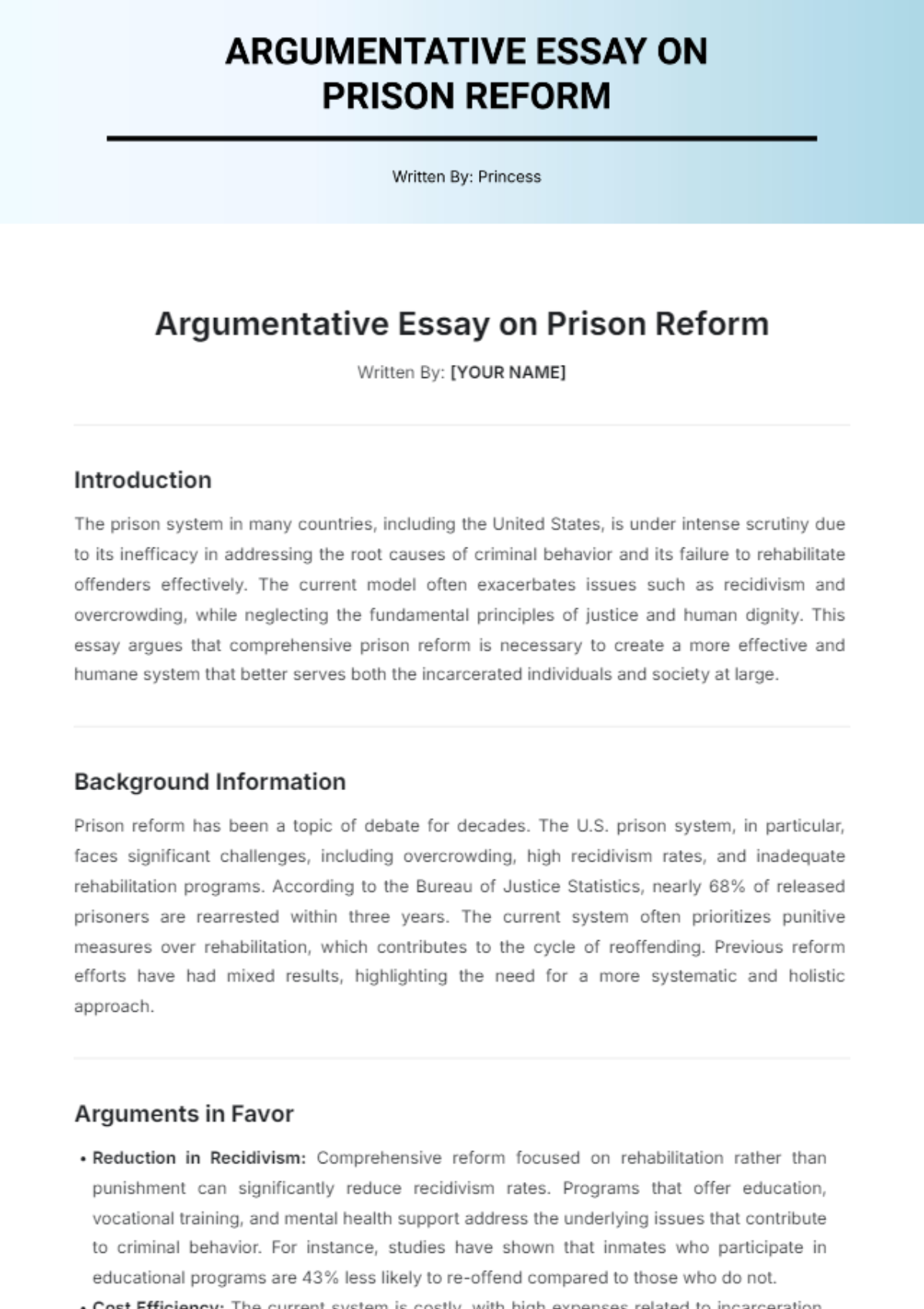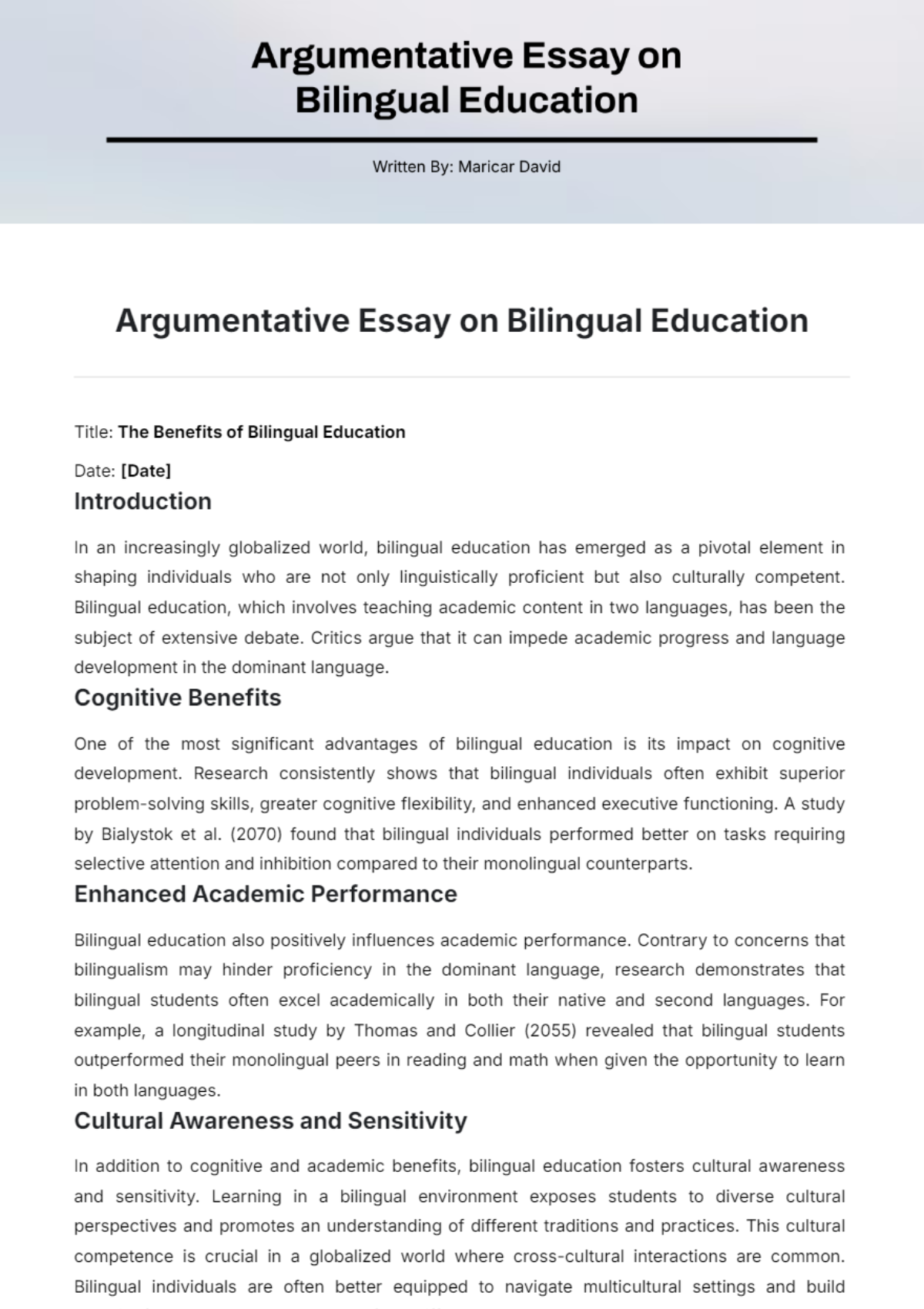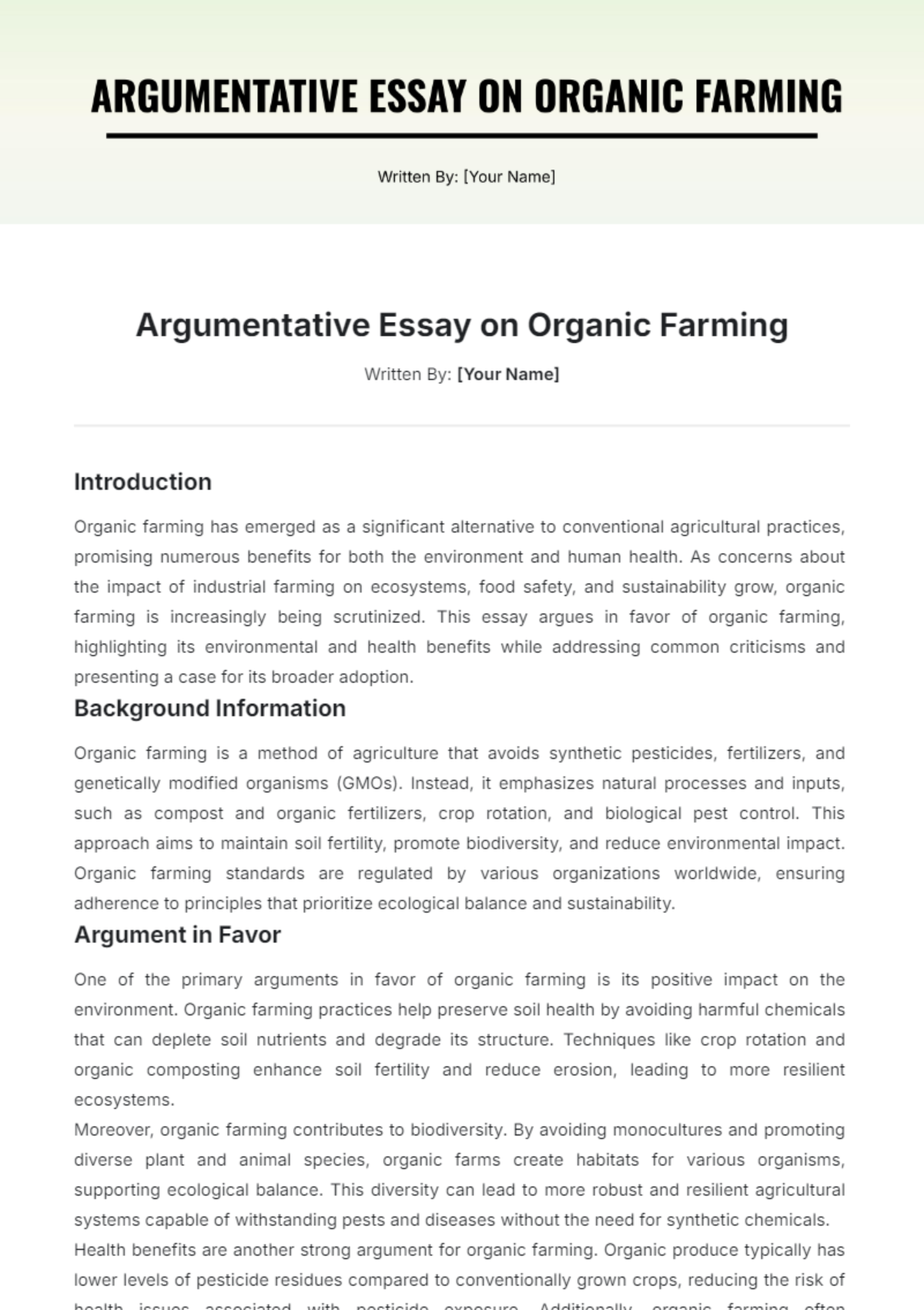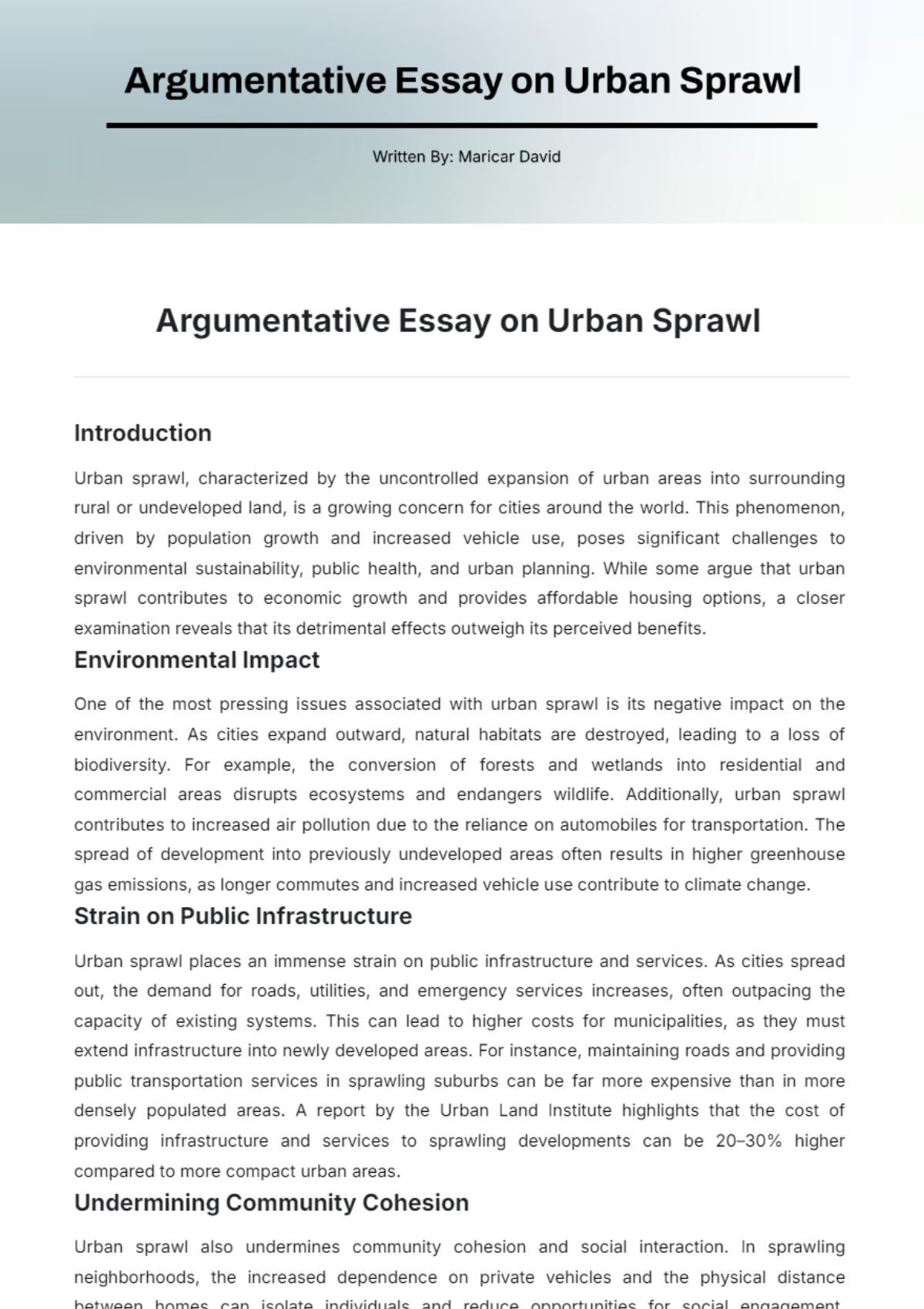Standardized Testing Debate Essay
Written by: [Your Name]
Standardized testing has been a cornerstone of the education system for decades, serving as a primary tool for assessing student performance and school effectiveness. Proponents argue that these tests provide an objective measure of student achievement, while critics contend that they do more harm than good by narrowing the curriculum and placing undue pressure on students and educators. This essay will explore three main points of the standardized testing debate: its effectiveness as a measurement tool, its impact on teaching and learning, and its psychological effects on students.
One of the strongest arguments in favor of standardized testing is its role as an objective measurement tool. These tests are designed to be consistent and free from individual bias, allowing for the comparison of student performance across different schools, districts, and even countries. In theory, standardized tests provide valuable data that can inform educational policy and help identify areas where schools need improvement. However, critics argue that these tests often fail to capture the full range of student abilities, particularly in areas like creativity, critical thinking, and problem-solving skills. Therefore, while standardized tests can offer some insights, they should not be the sole measure of student achievement.
The impact of standardized testing on teaching and learning is a significant point of contention. Supporters claim that these tests encourage schools to maintain high academic standards and hold educators accountable for student performance. Conversely, opponents argue that the emphasis on testing leads to a narrowed curriculum, where "teaching to the test" becomes prevalent. This phenomenon can result in the neglect of important subjects such as art, music, and physical education, as well as reduce opportunities for experiential and project-based learning. Consequently, while standardized tests aim to improve educational outcomes, they can inadvertently stifle innovation and limit the breadth of student learning experiences.
Another critical aspect of the standardized testing debate is its psychological impact on students. High-stakes testing can create a pressure-cooker environment, leading to increased stress and anxiety among students. Some believe that this stress can encourage resilience and perseverance; however, for many students, particularly those from disadvantaged backgrounds, the pressure can be overwhelming and detrimental to their mental health. Furthermore, the fear of underperforming can discourage students from taking academic risks or exploring subjects outside the core test areas. Thus, the psychological costs of standardized testing must be carefully weighed against its intended benefits.
In conclusion, the debate over standardized testing is multifaceted and complex. While these tests can provide valuable data and promote accountability, they also have significant drawbacks, including a narrowed curriculum and increased student stress. As educators and policymakers continue to grapple with this issue, it is crucial to seek a balanced approach that acknowledges the limitations of standardized tests while exploring alternative methods of assessment. Only through a comprehensive and nuanced understanding of the debate can we hope to create an education system that truly serves the diverse needs of all students.
